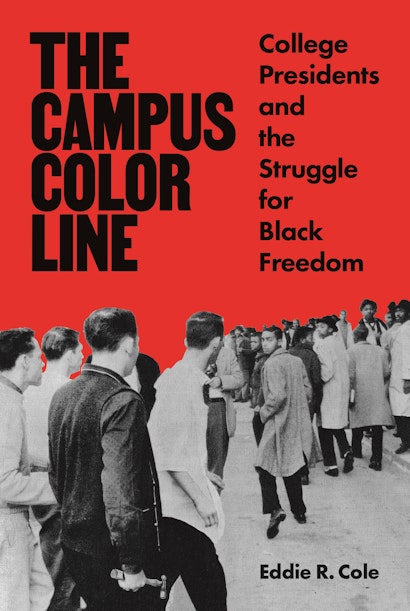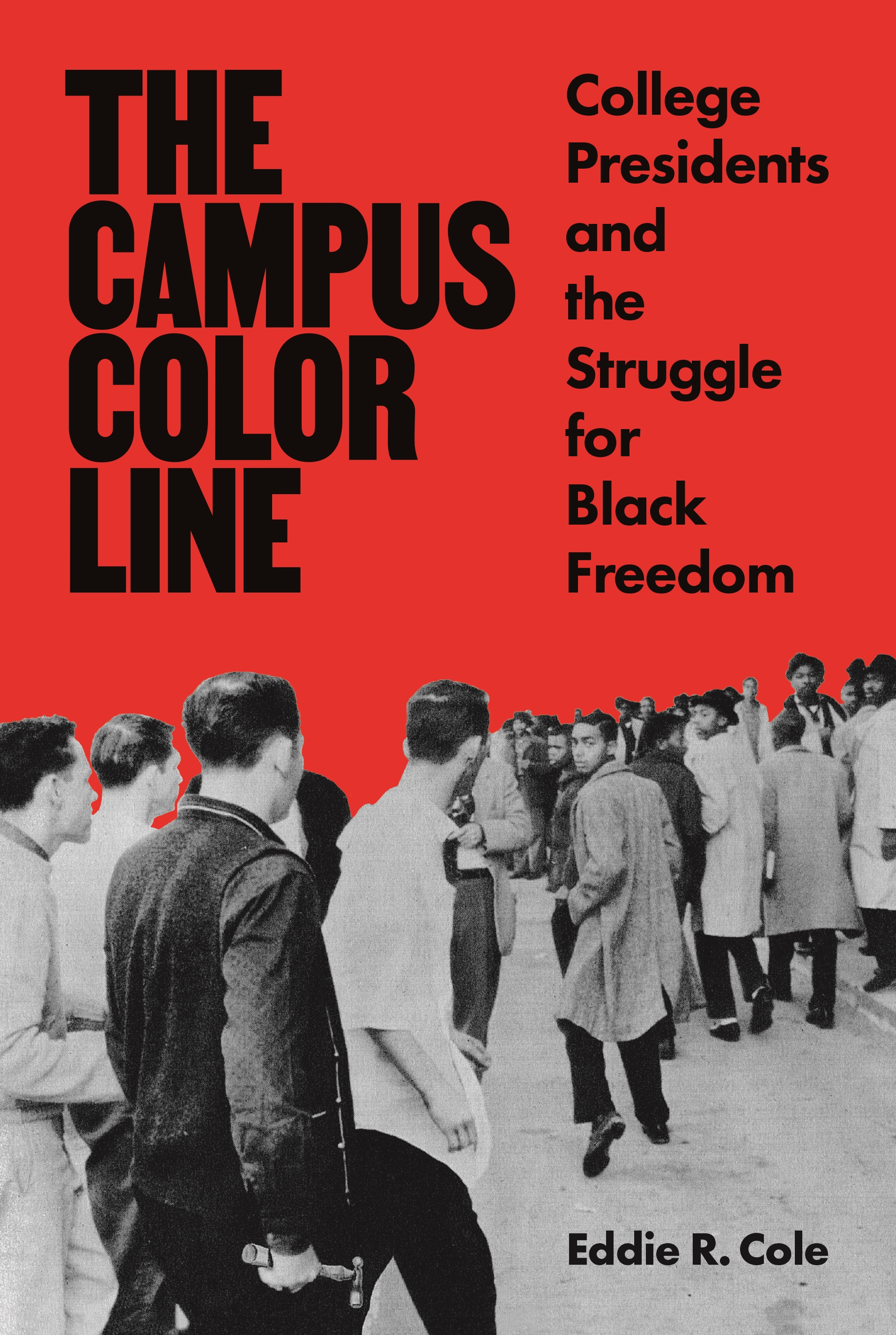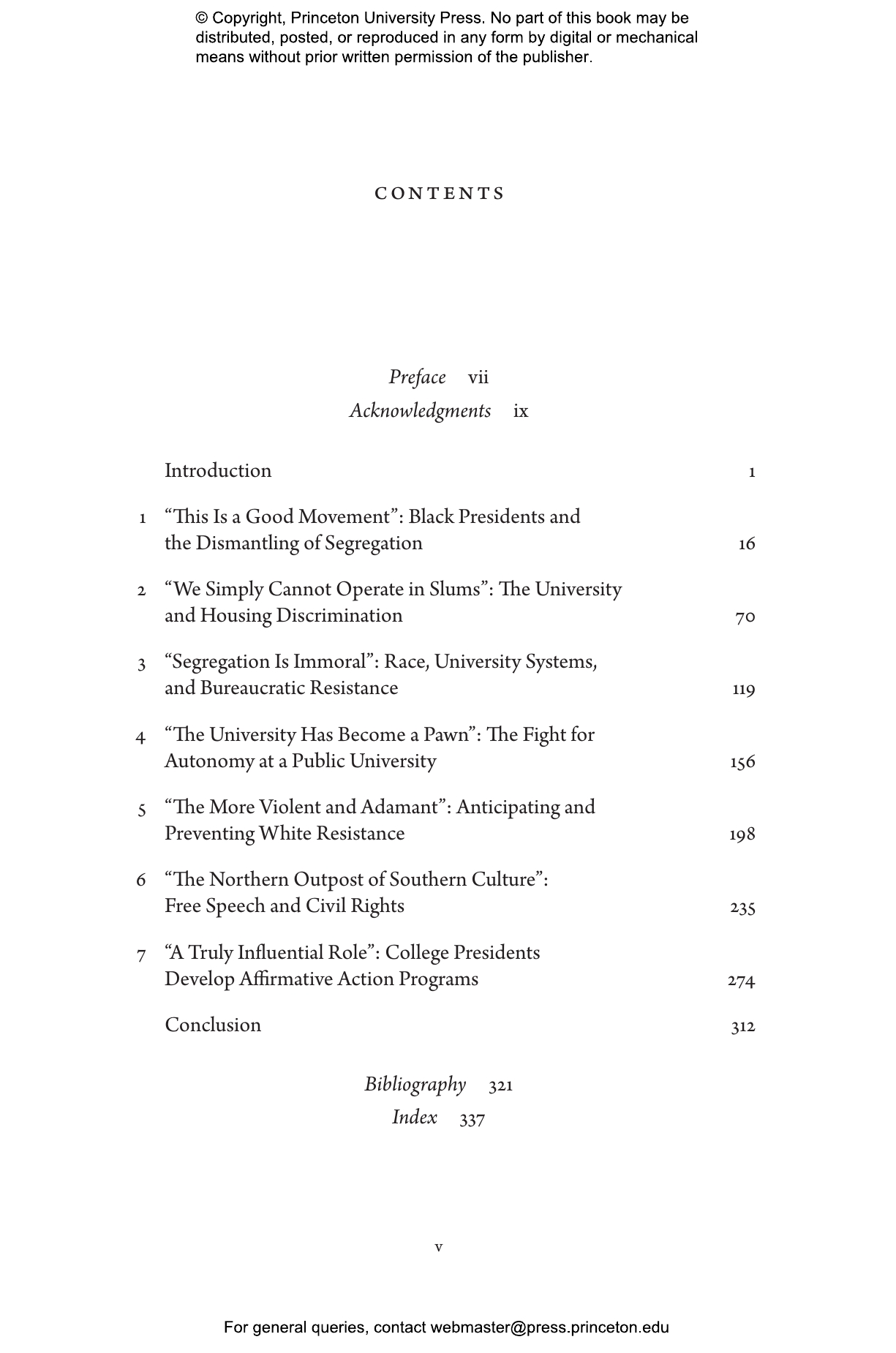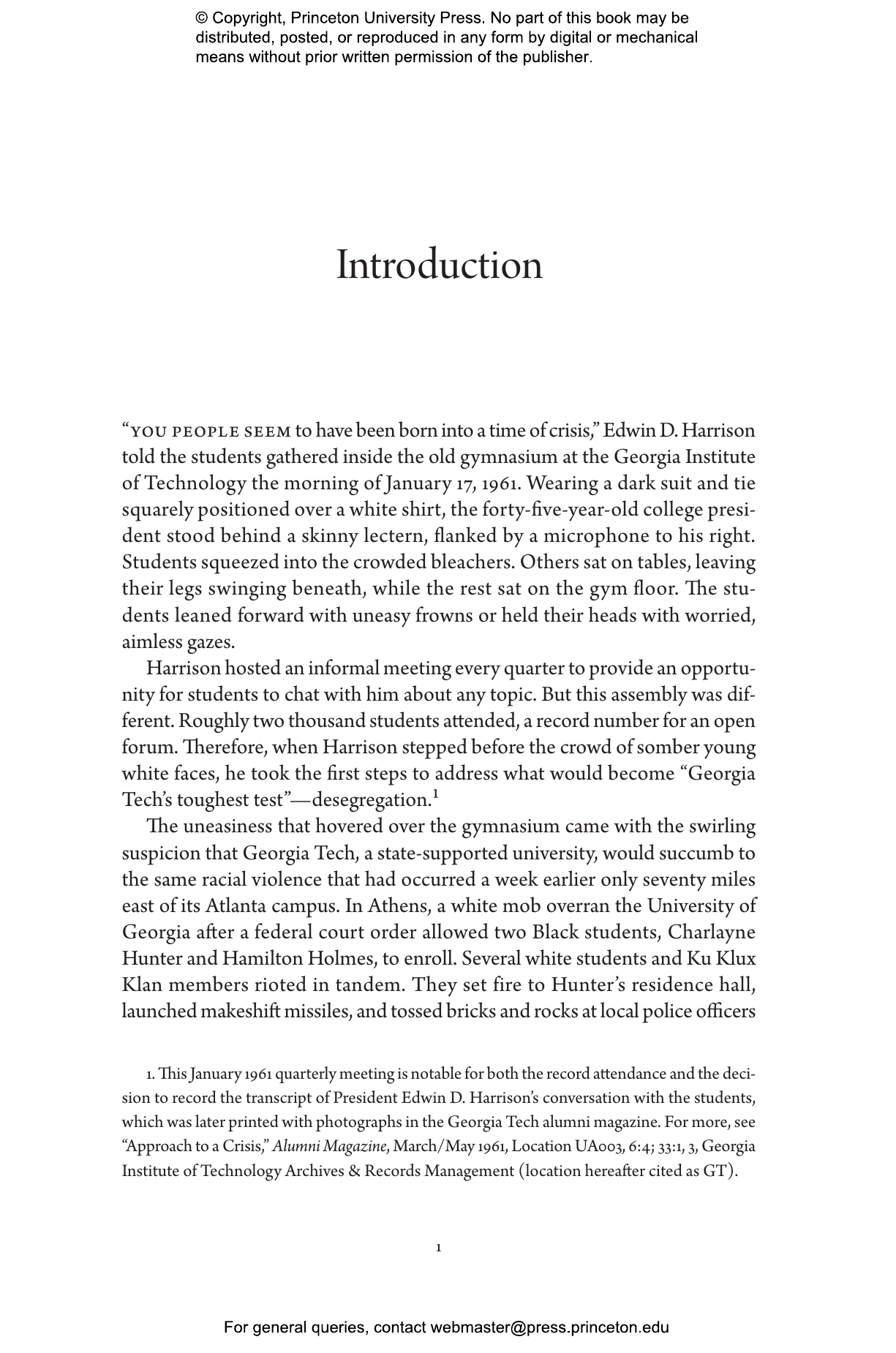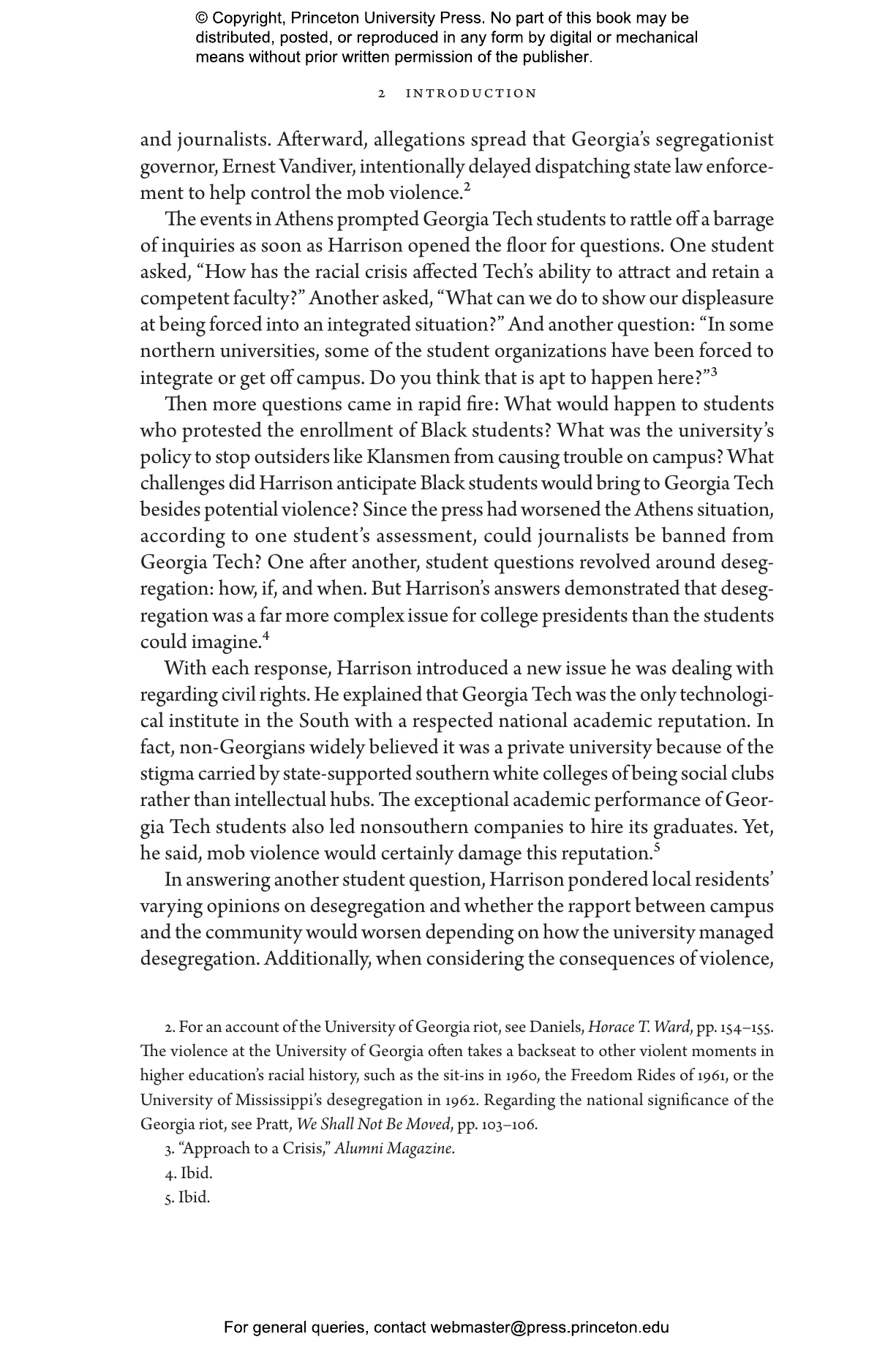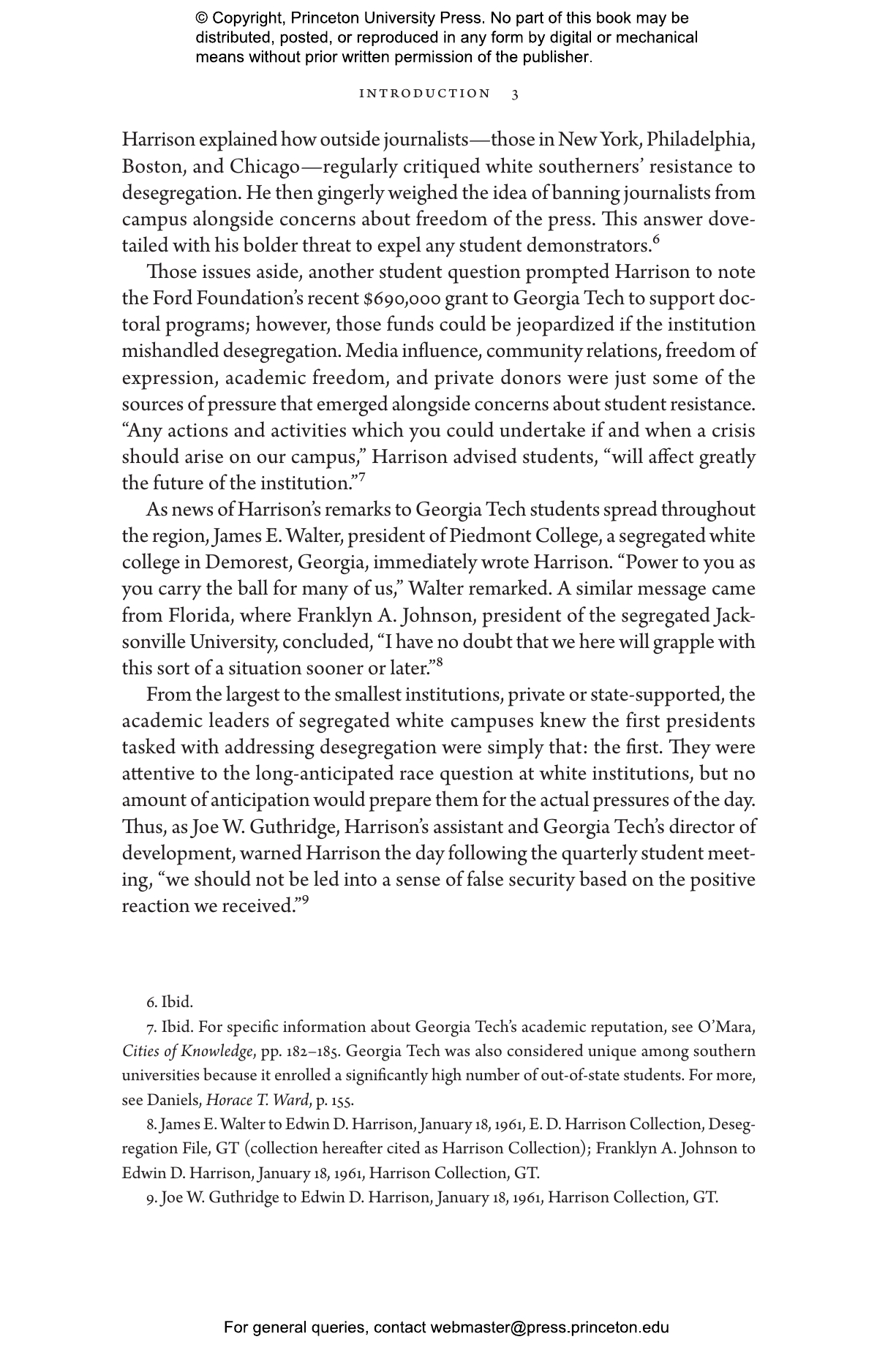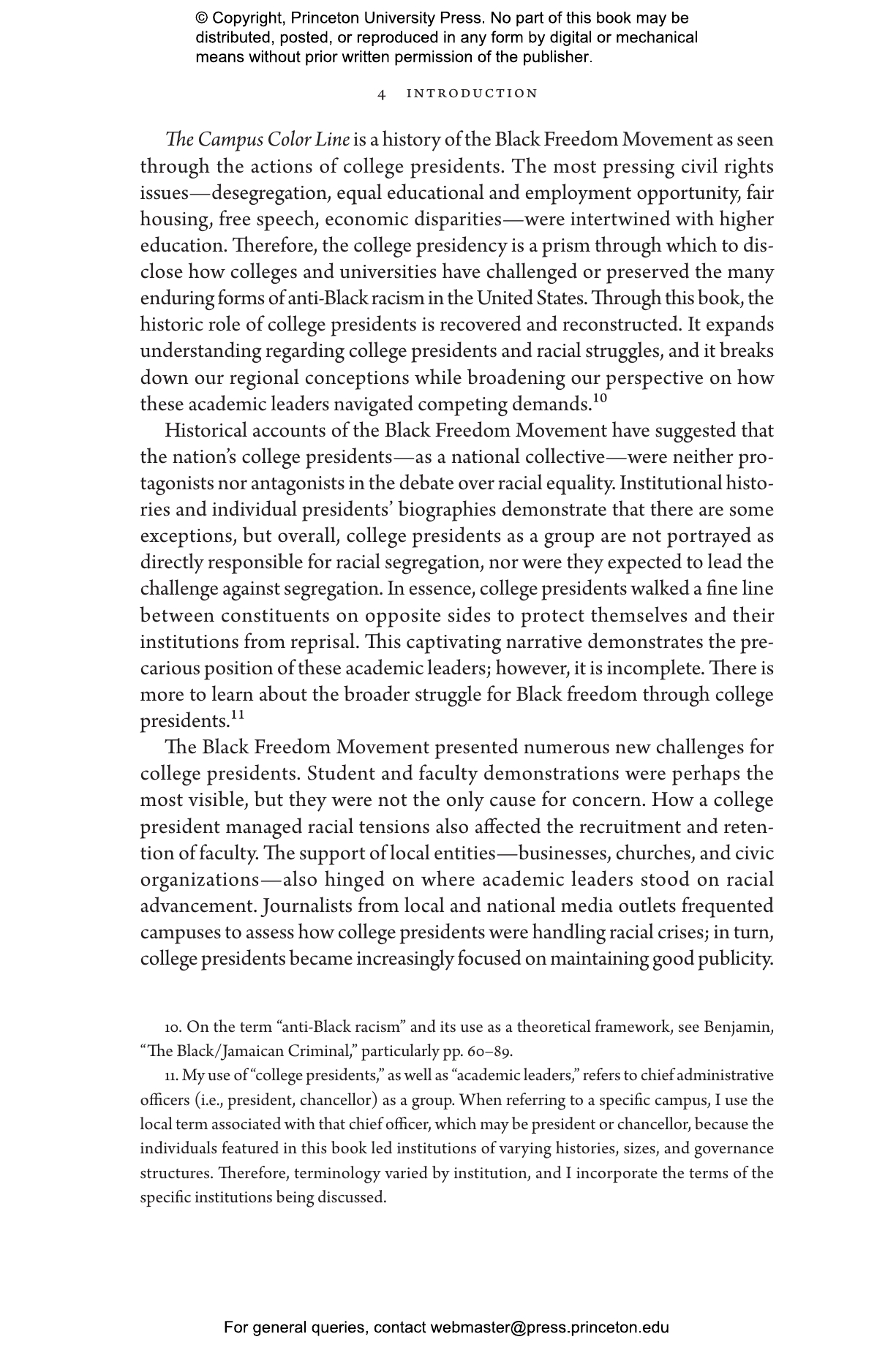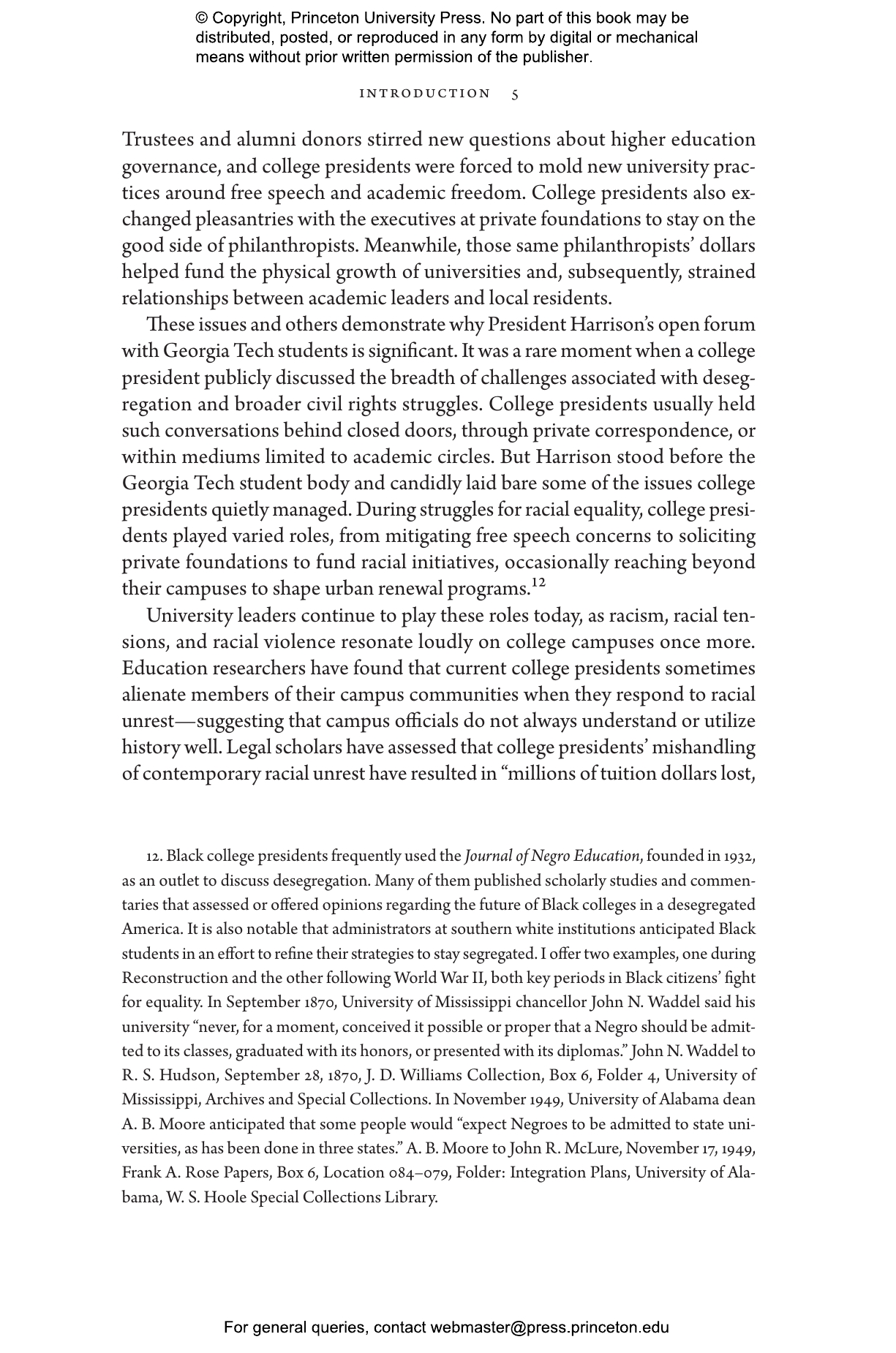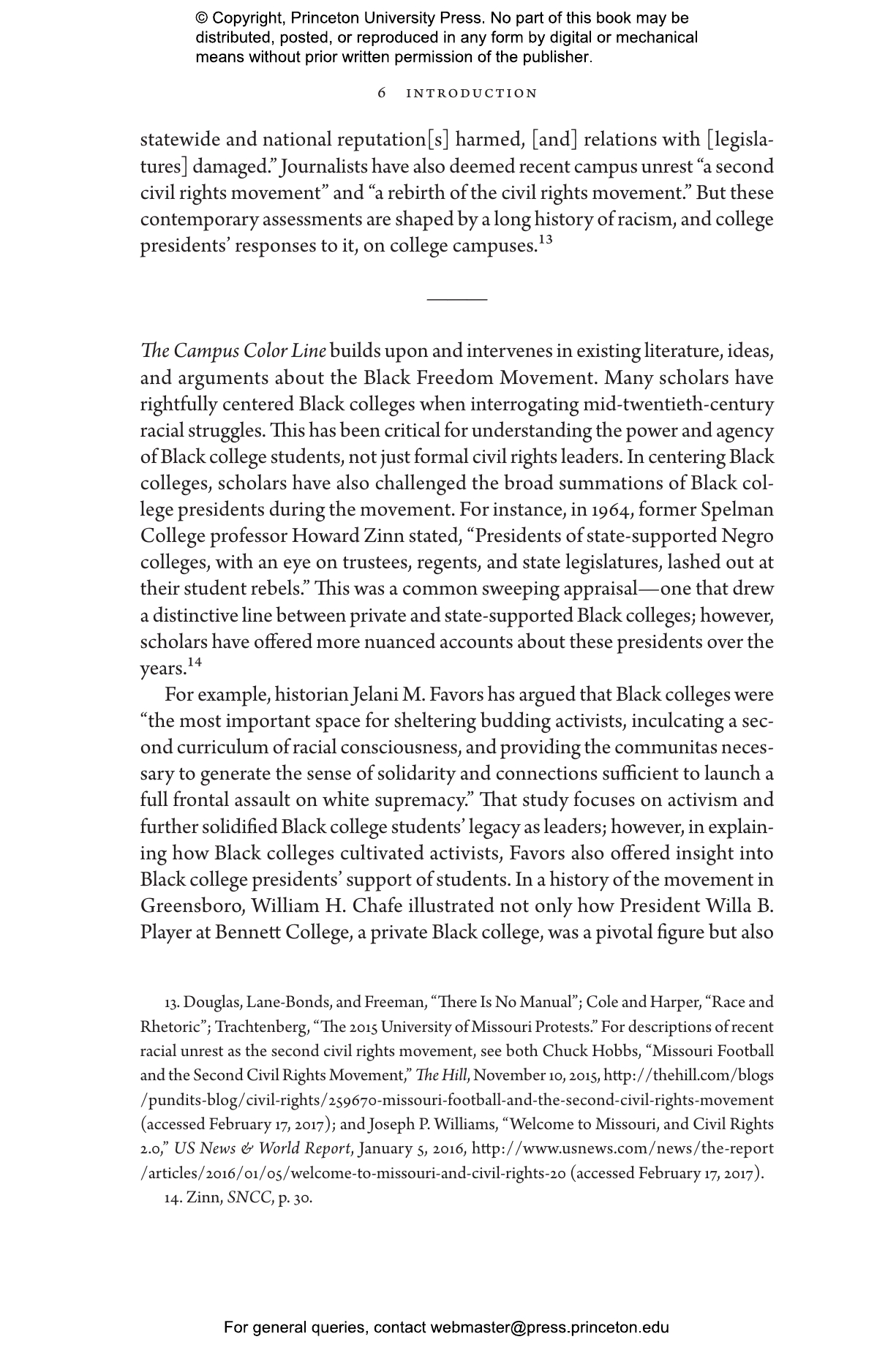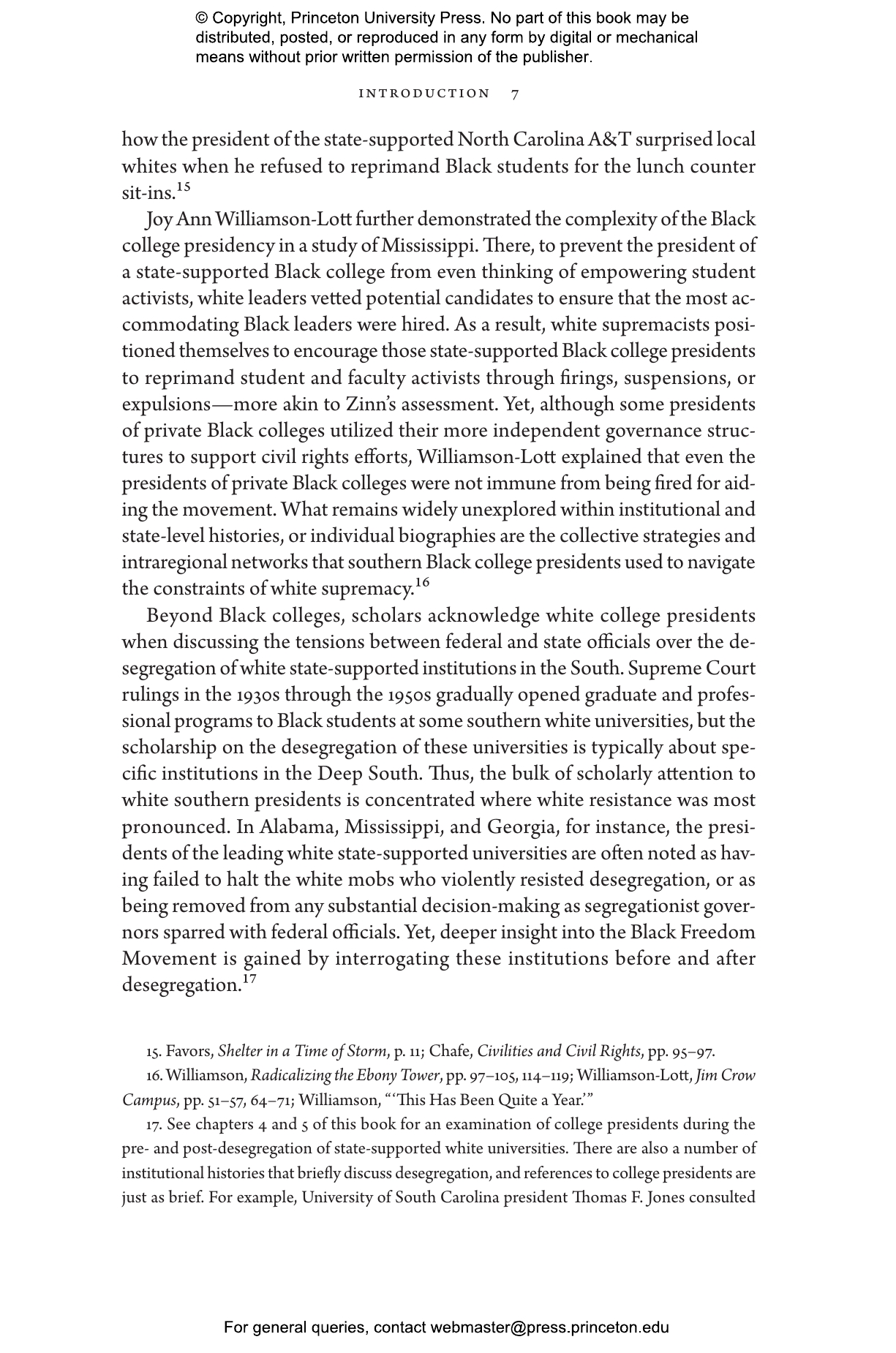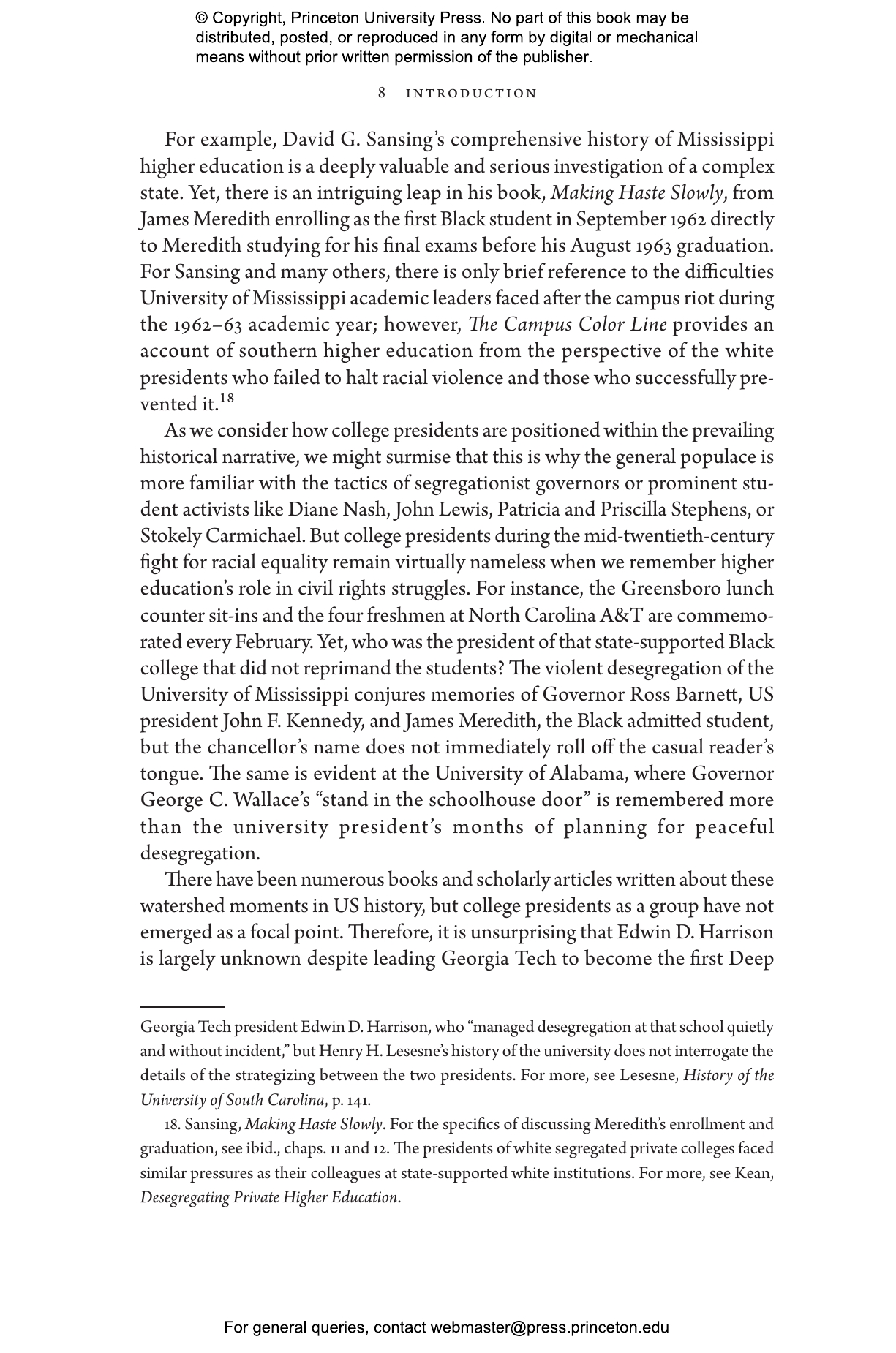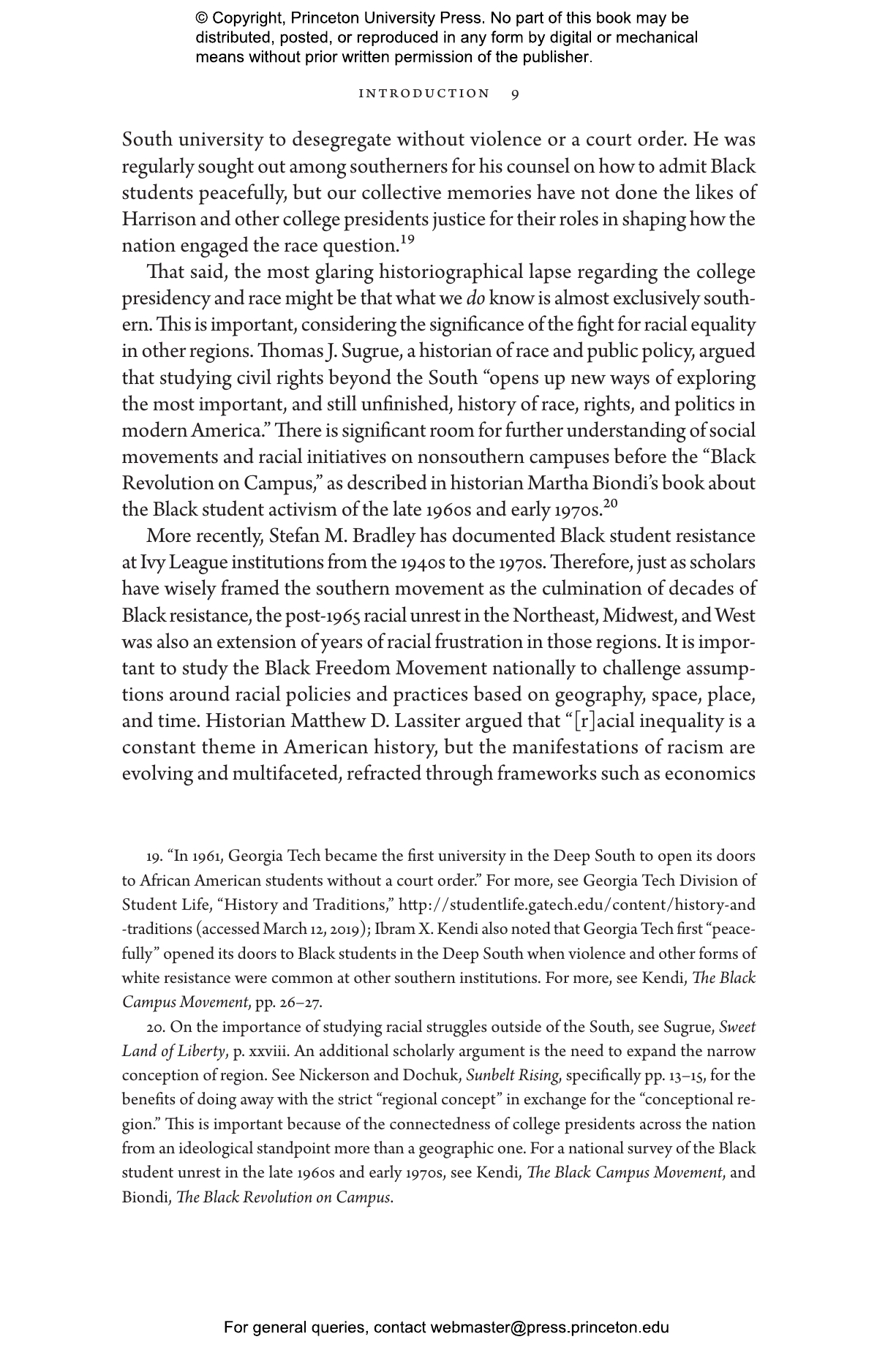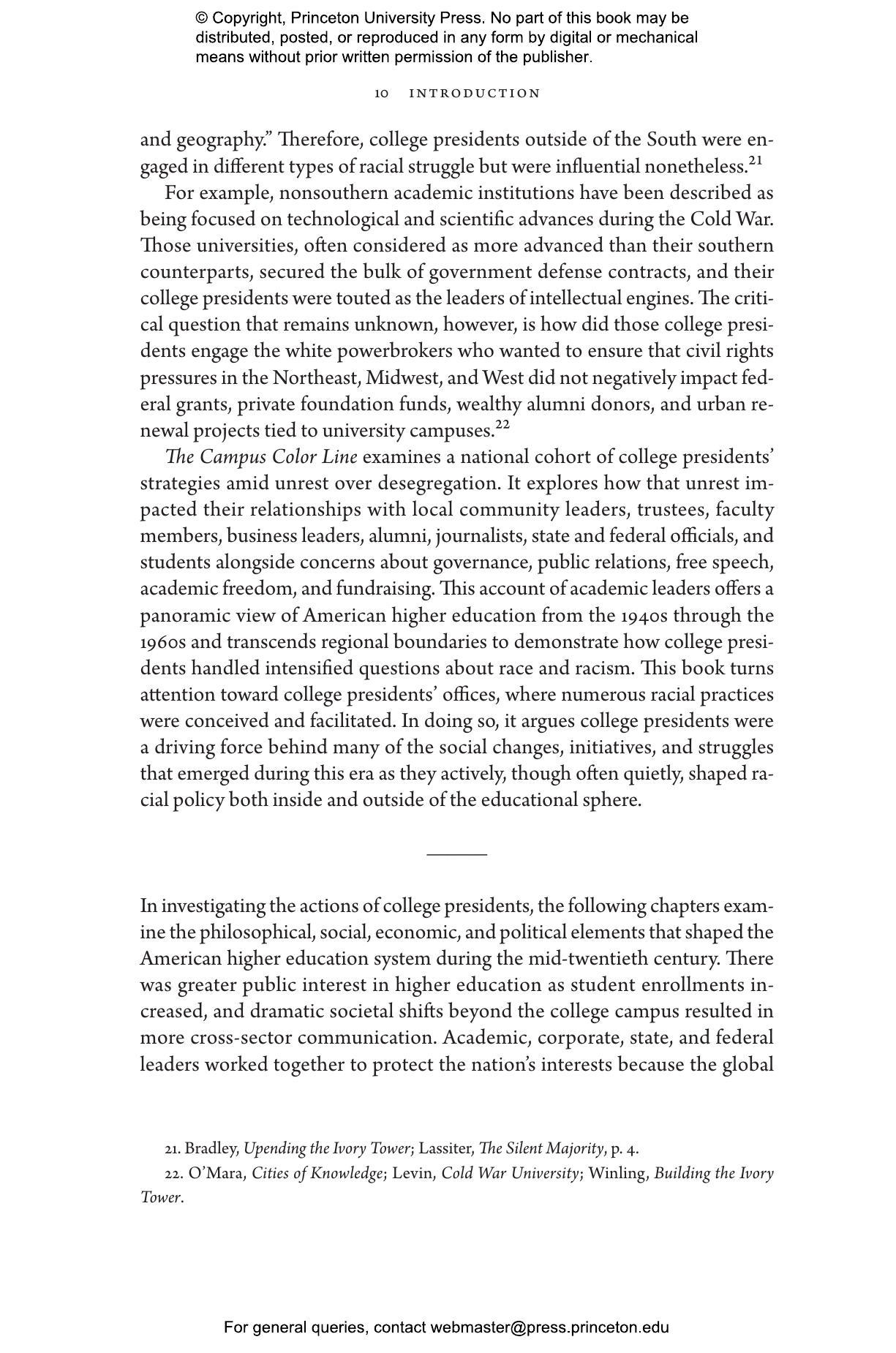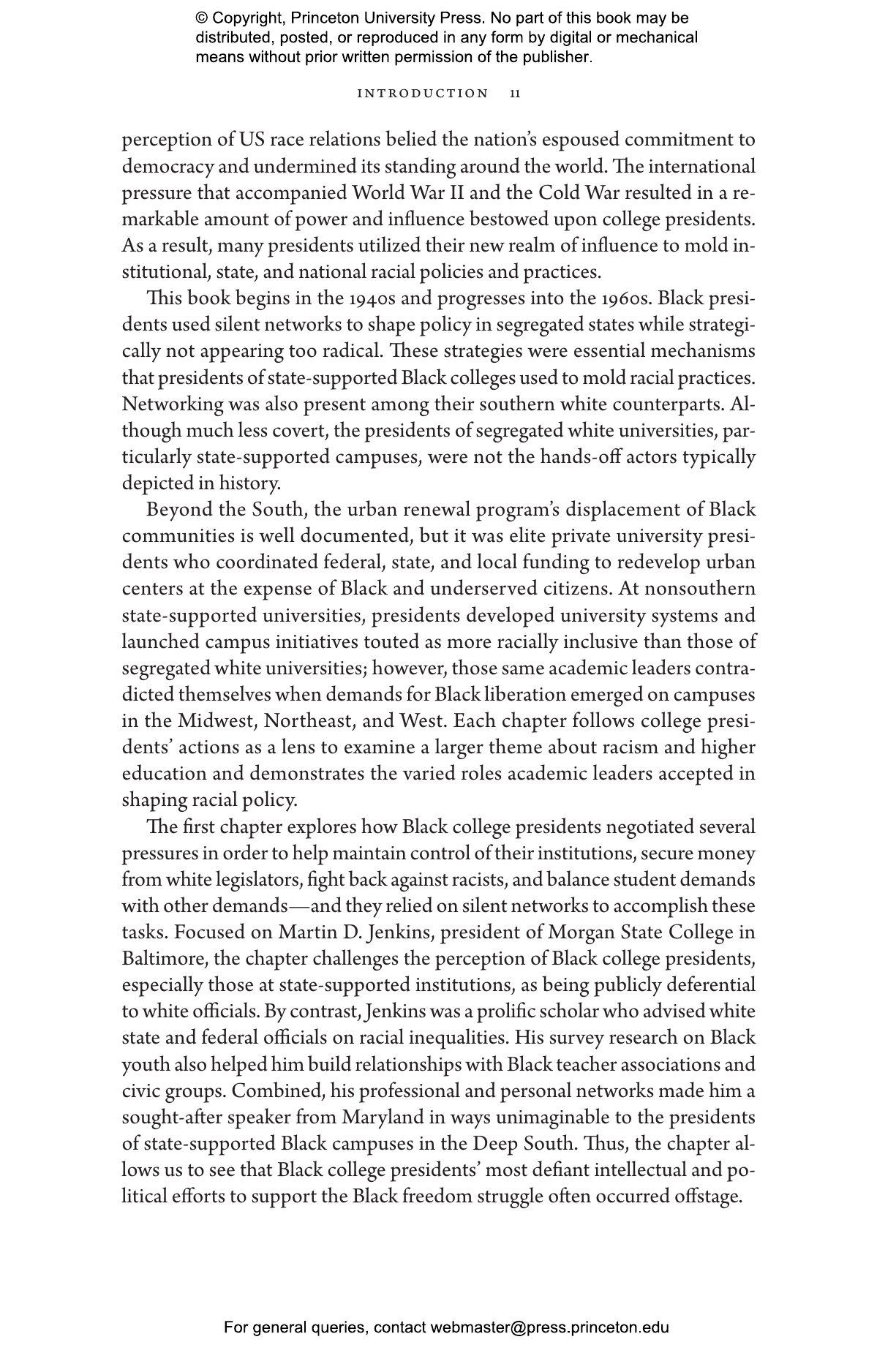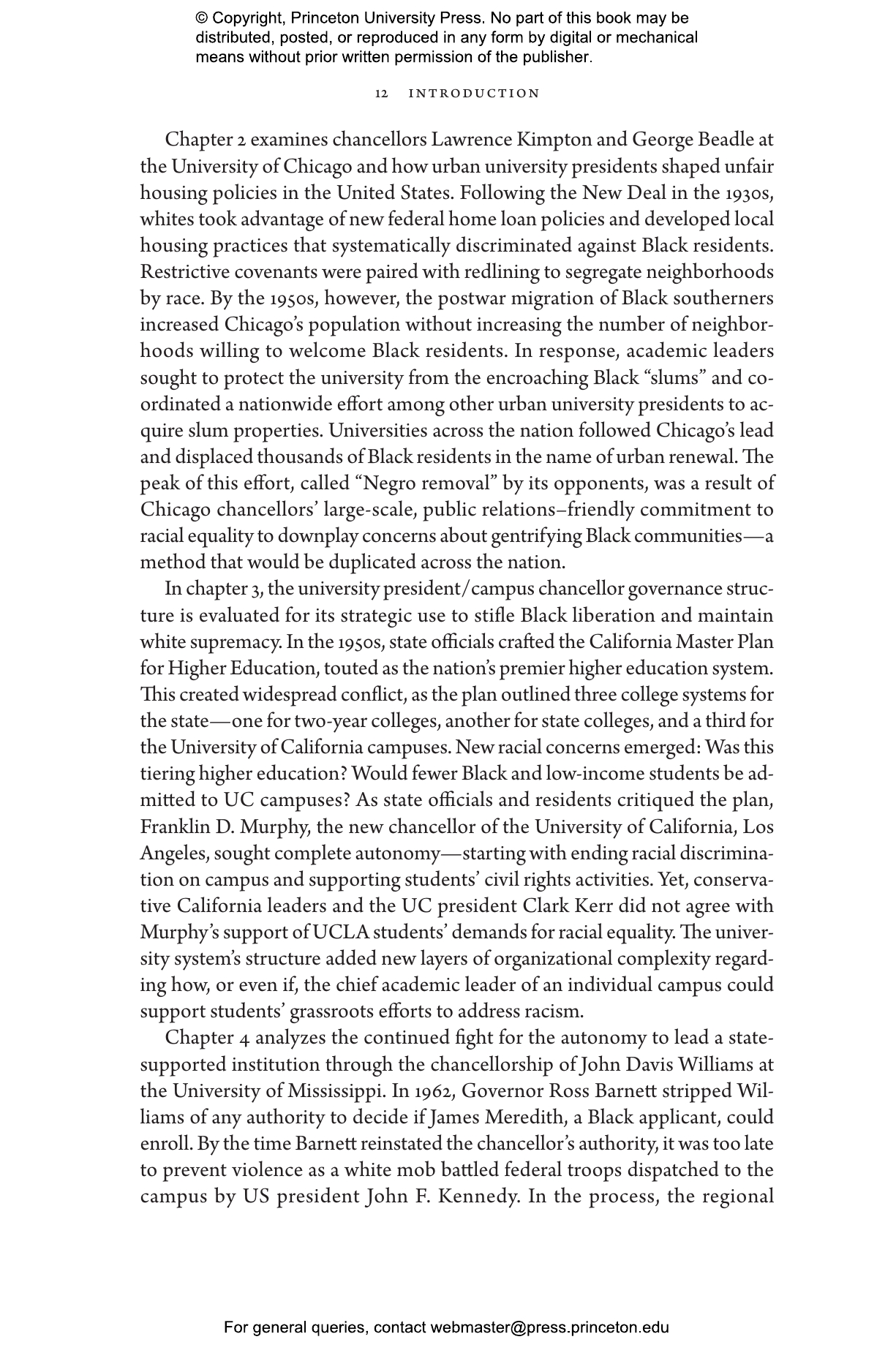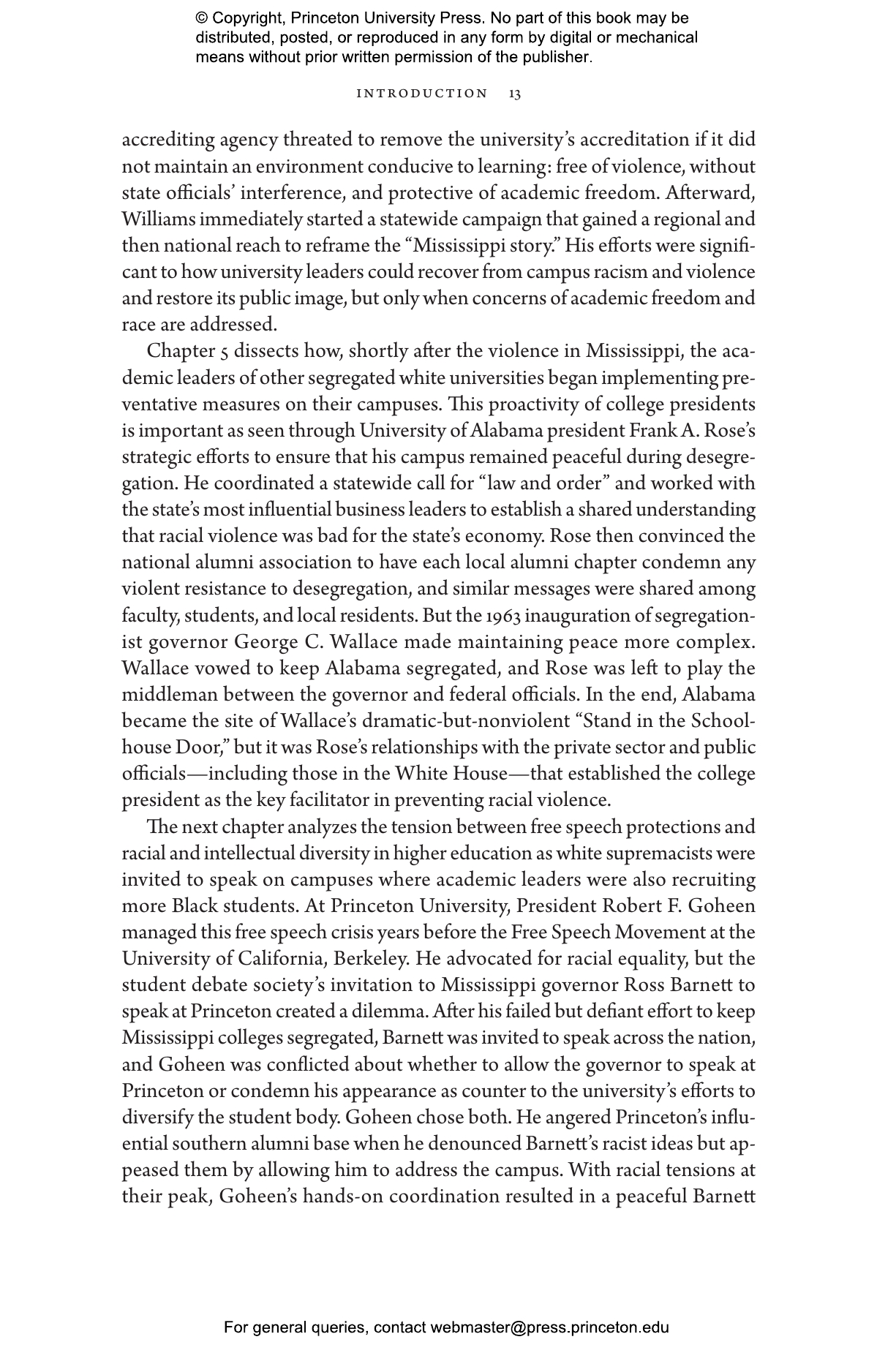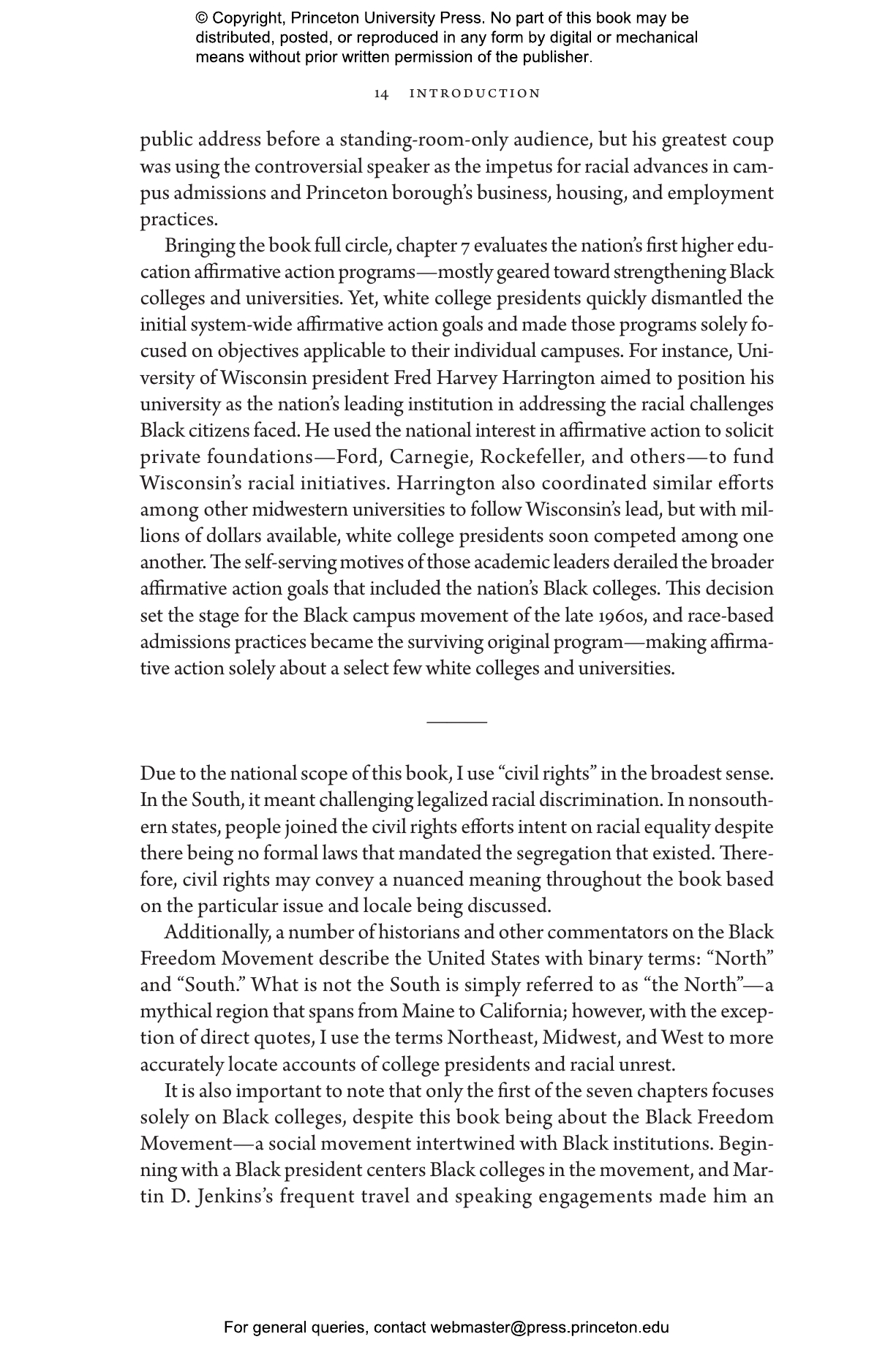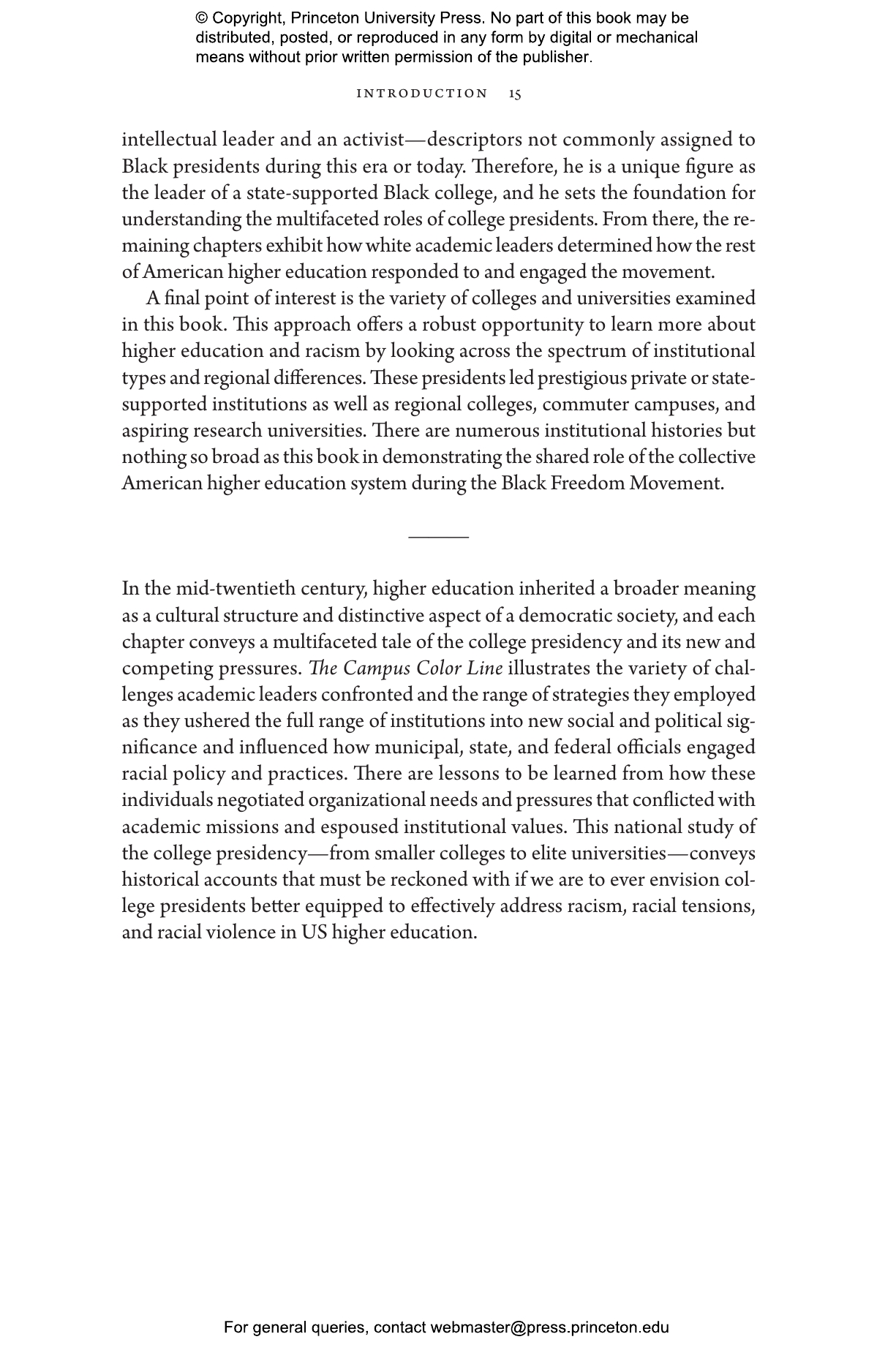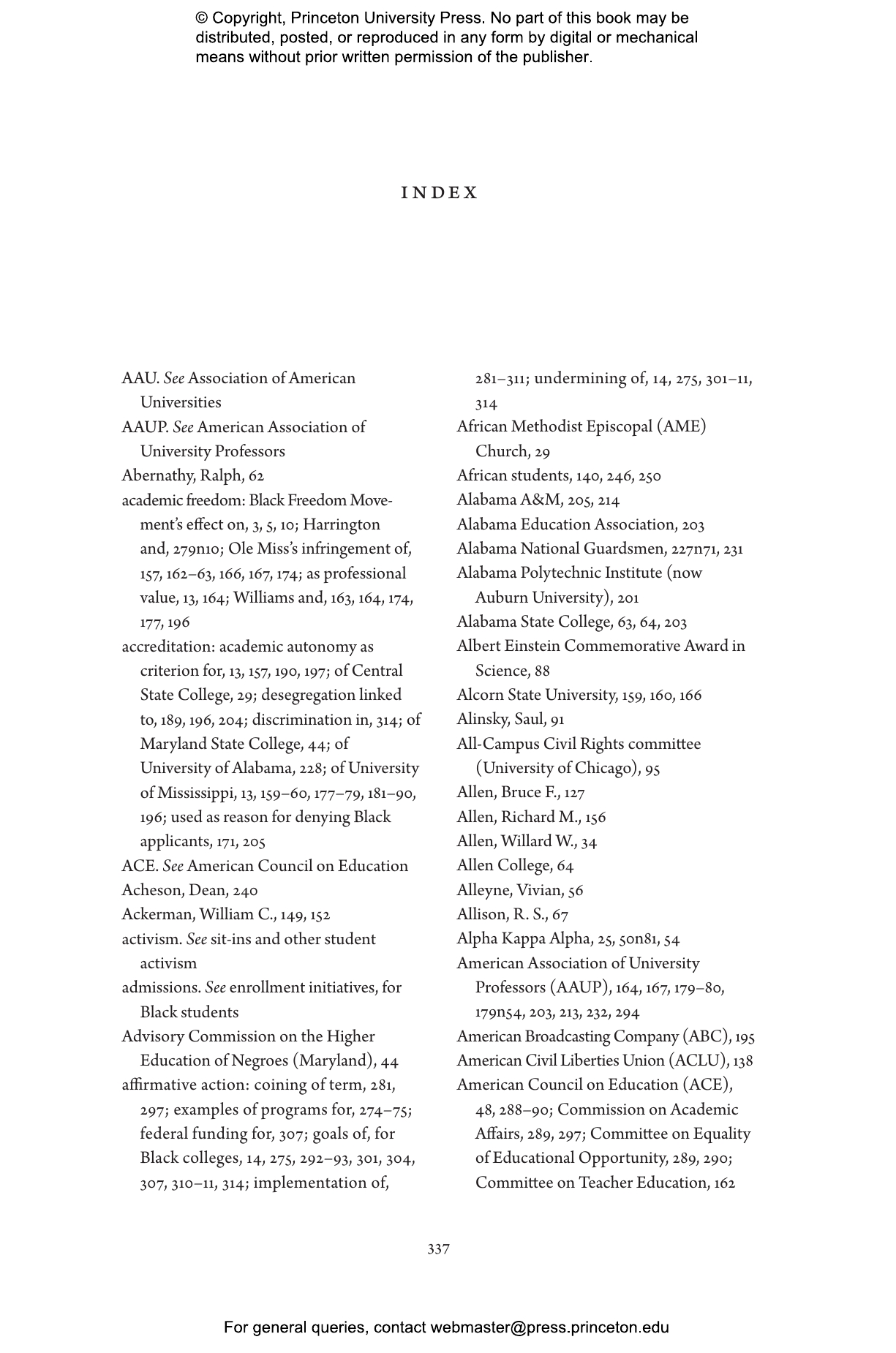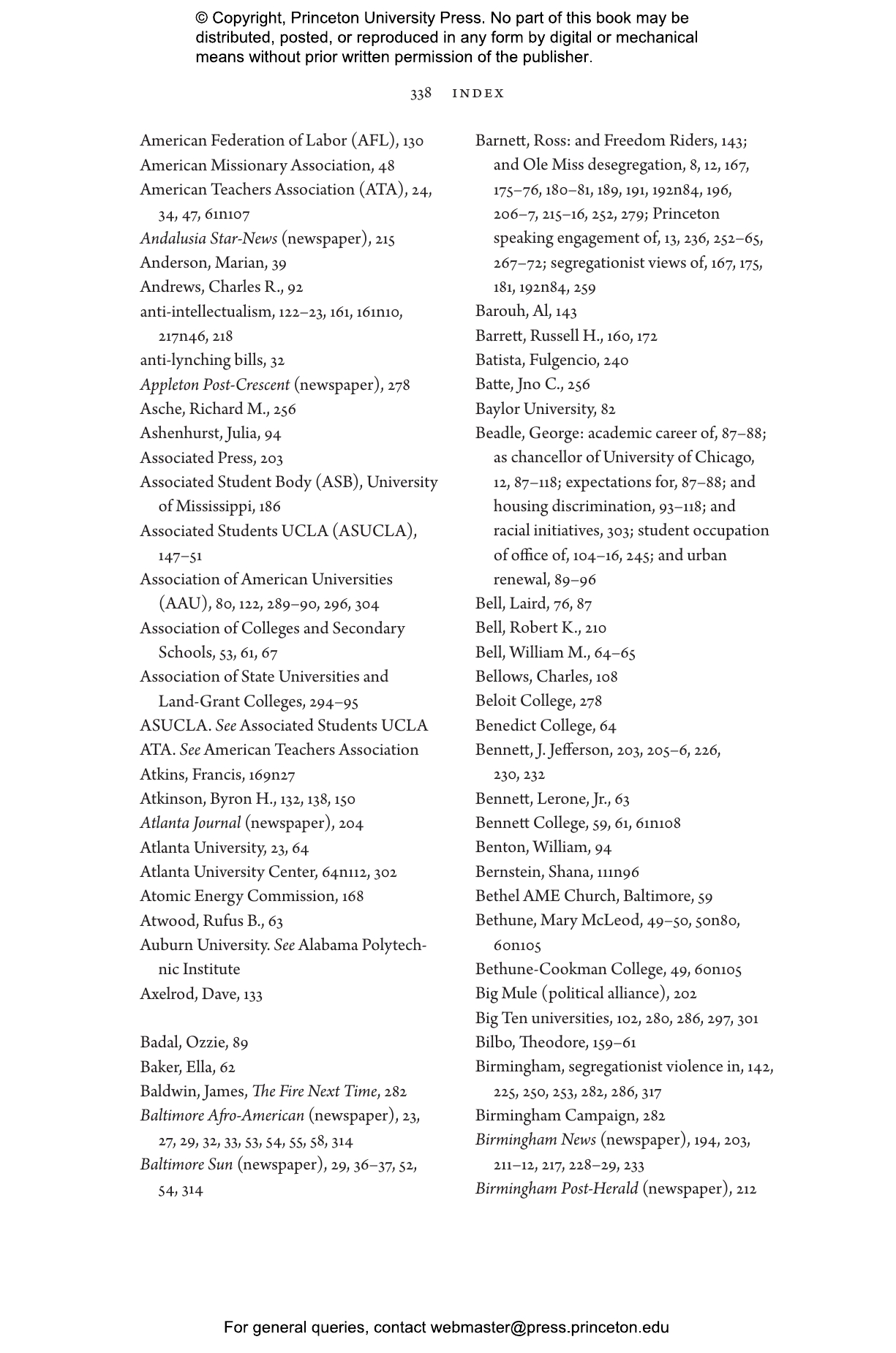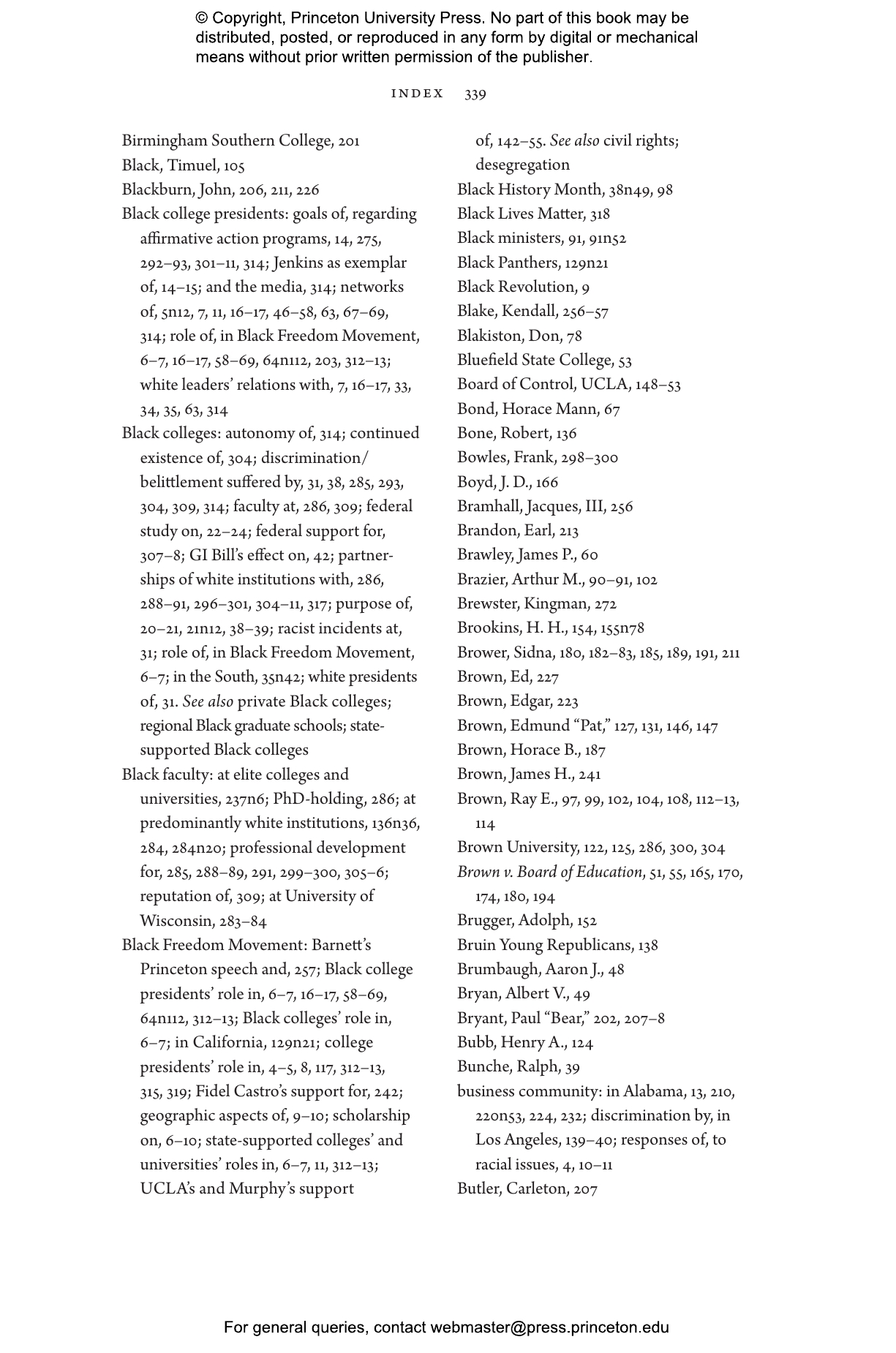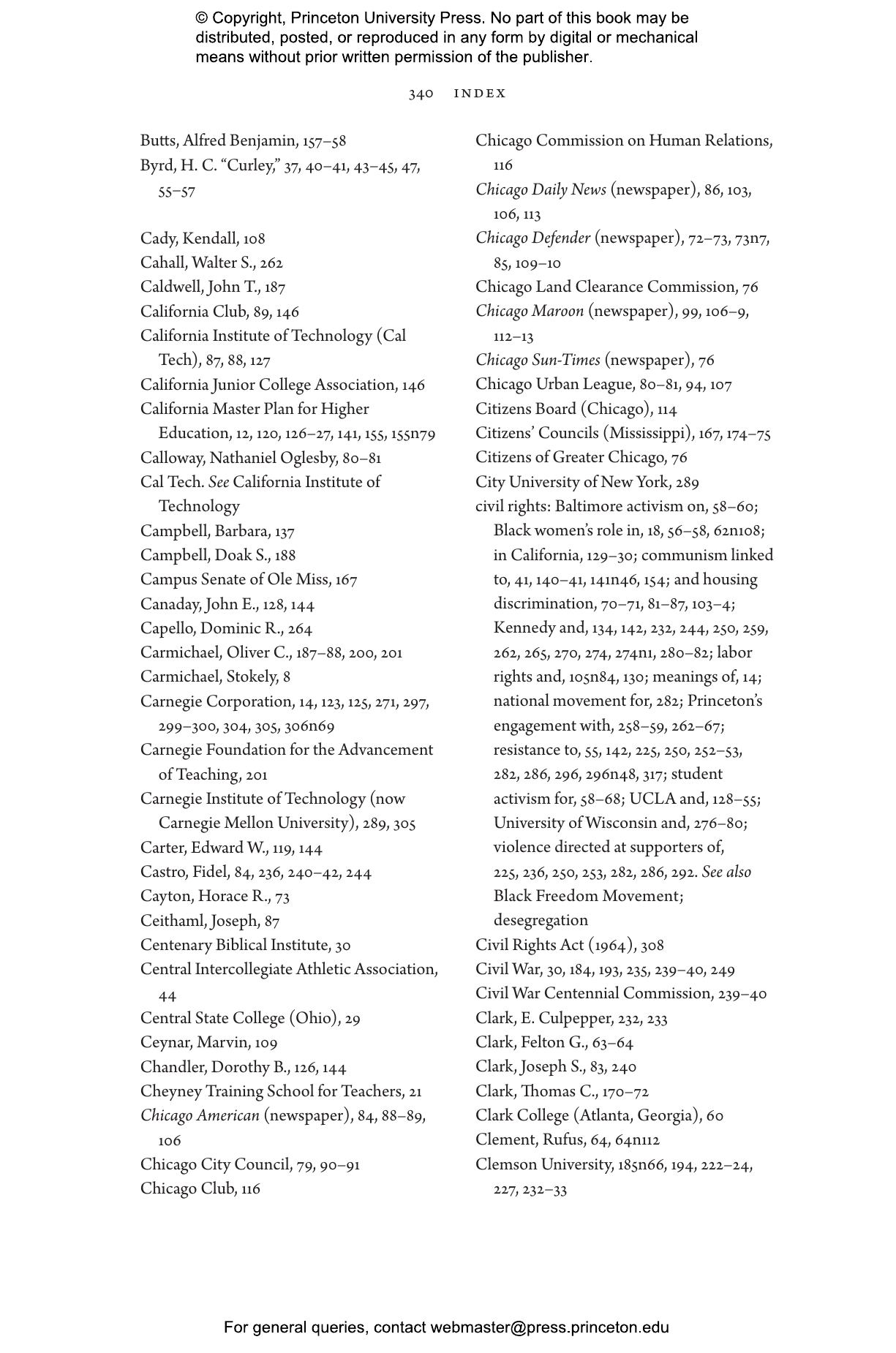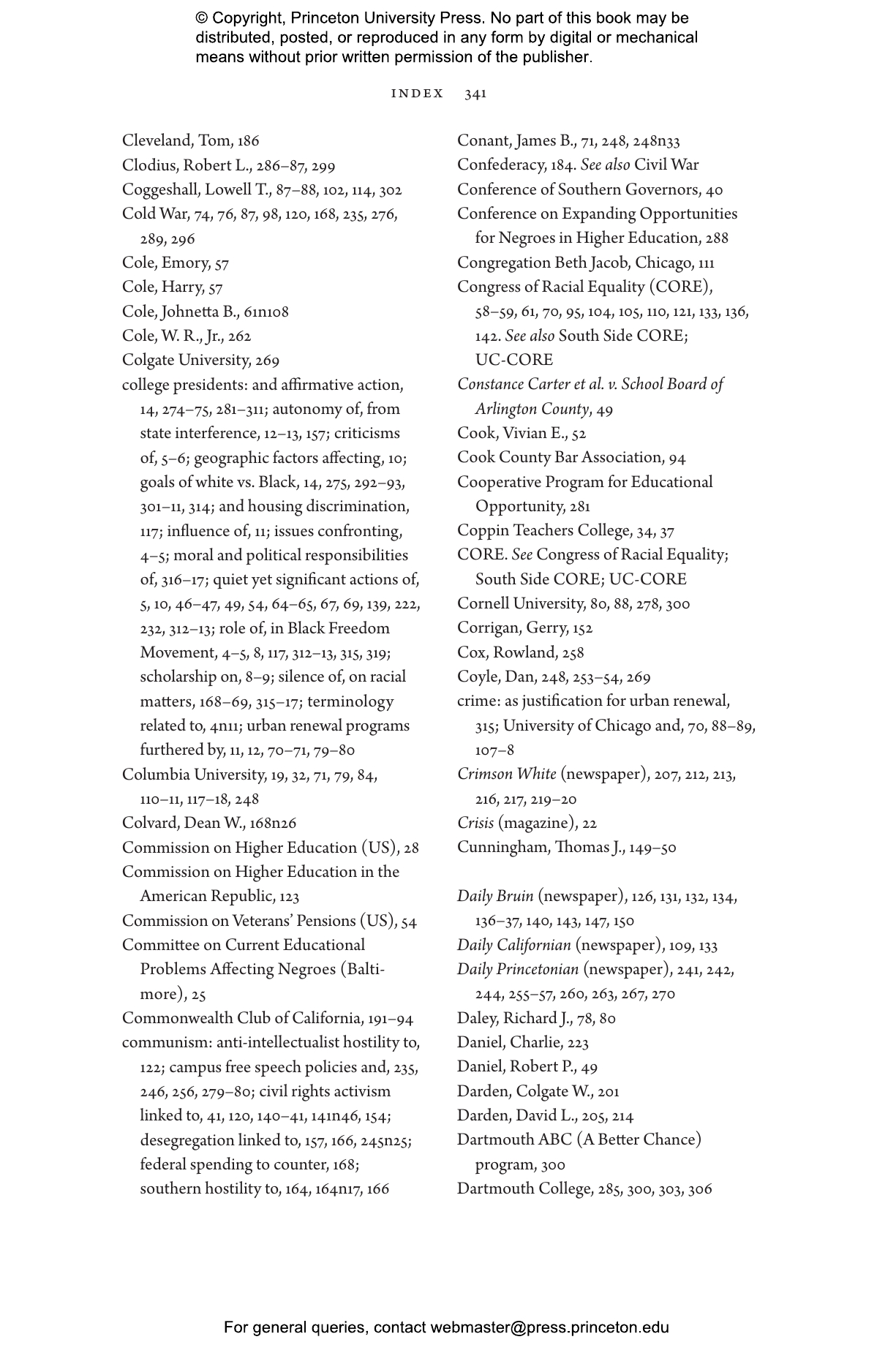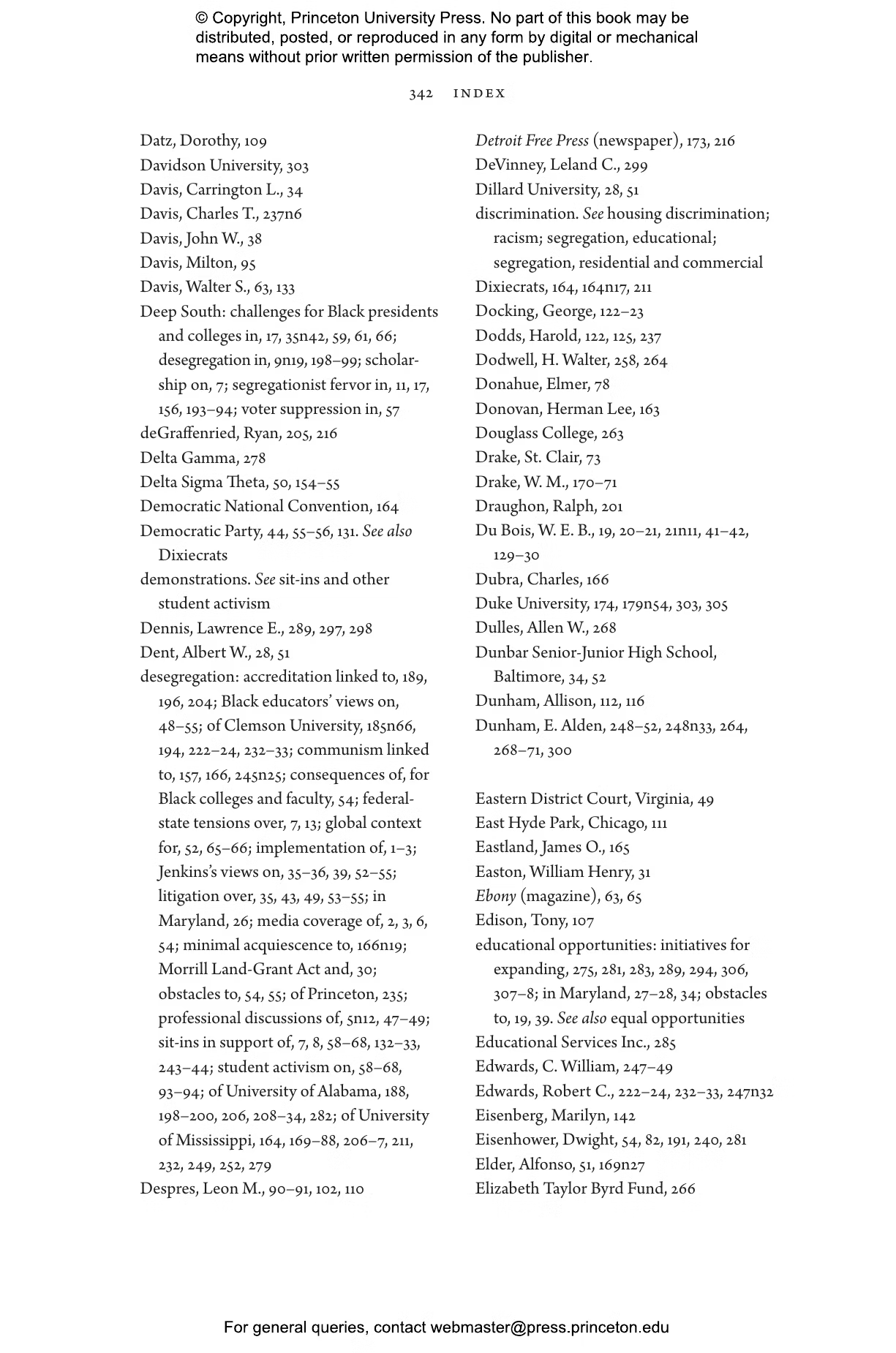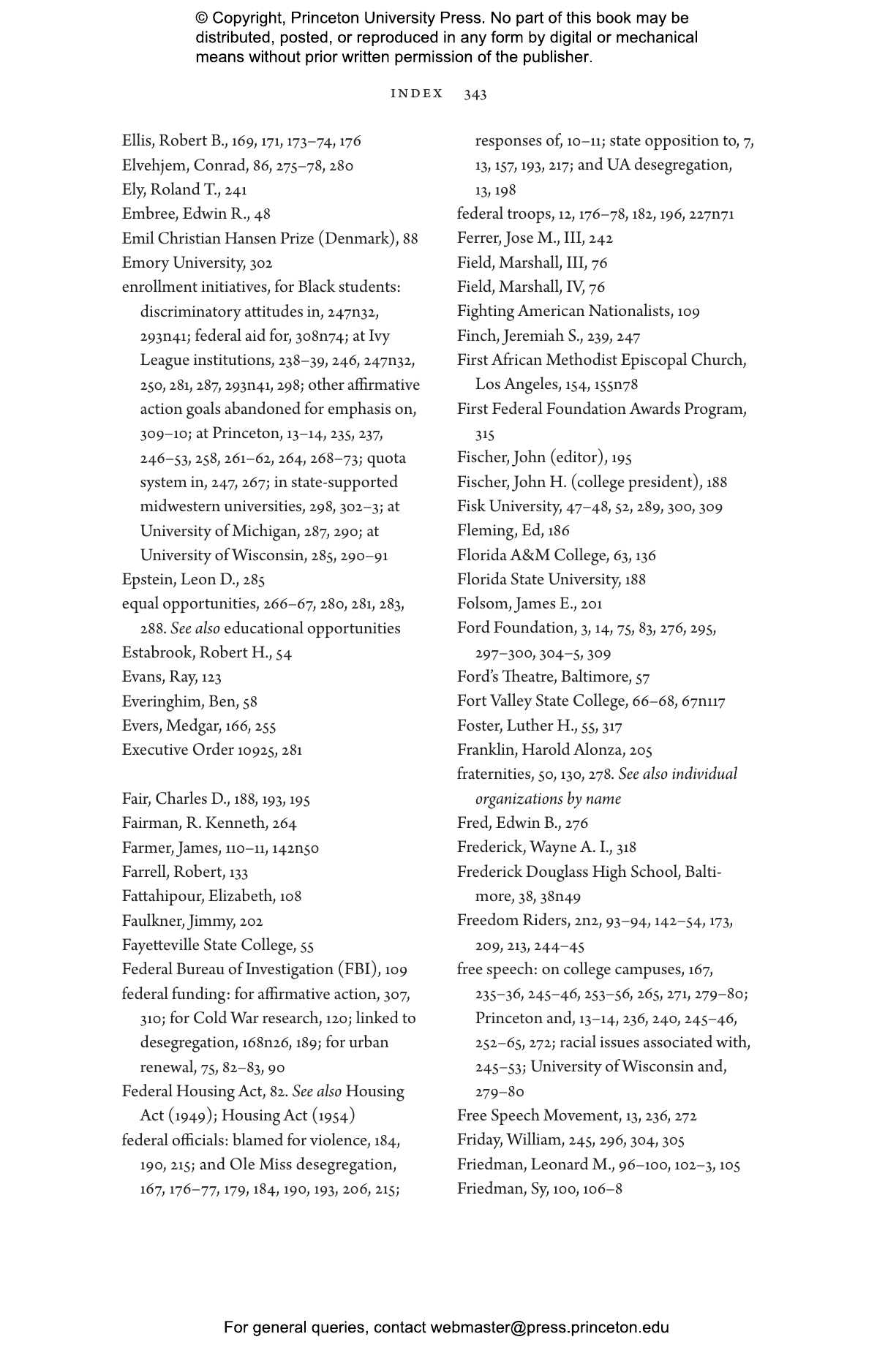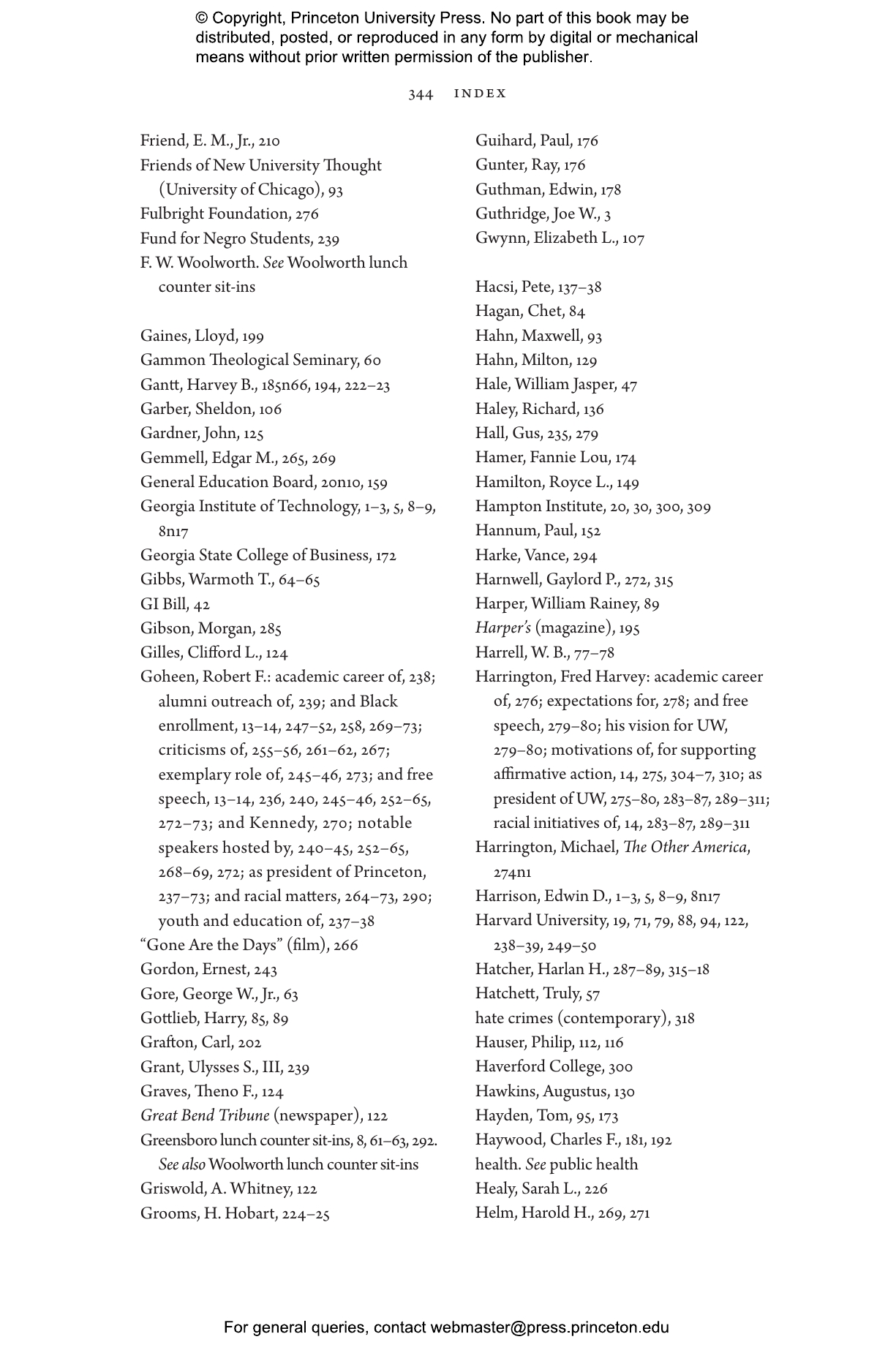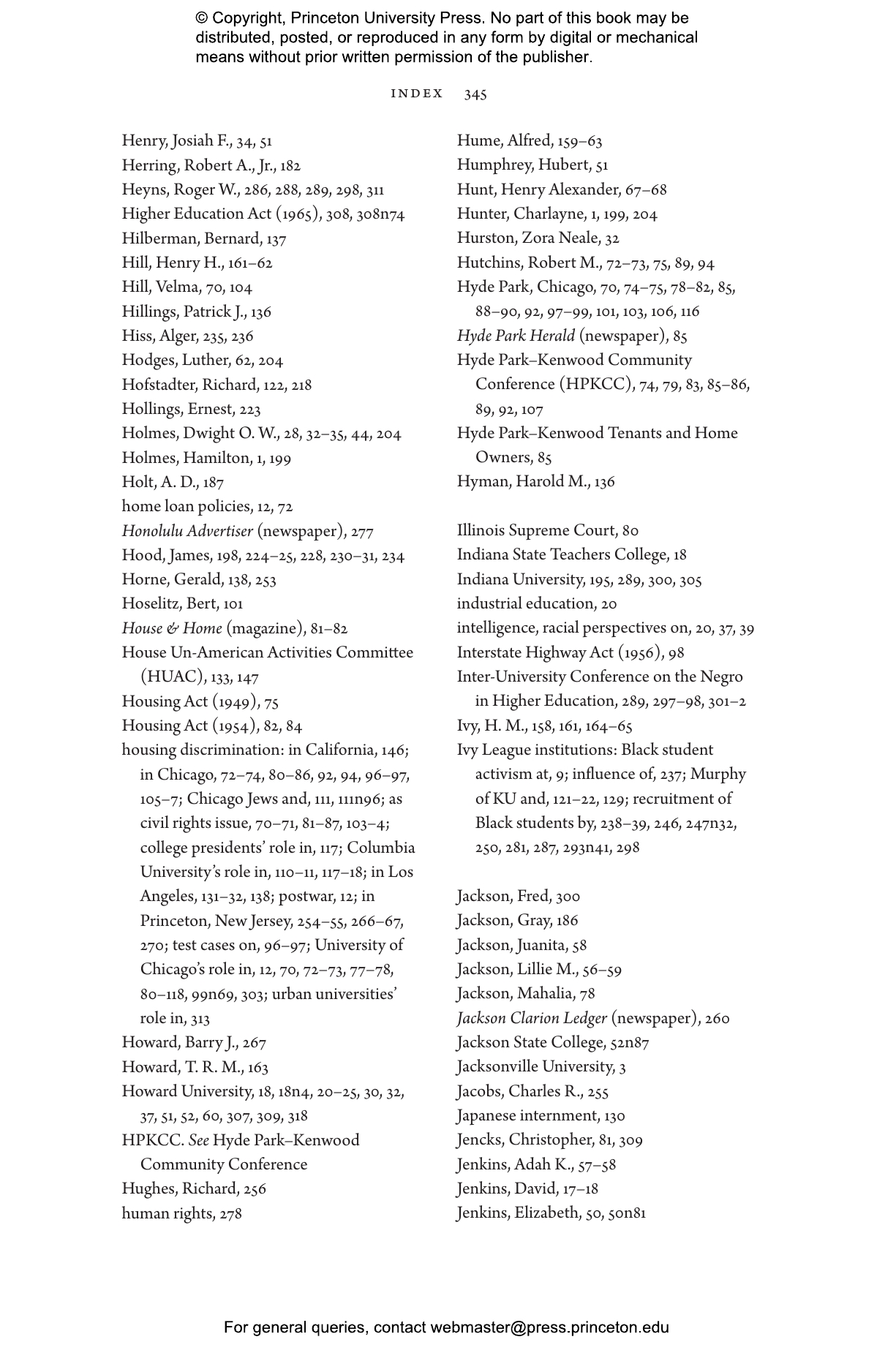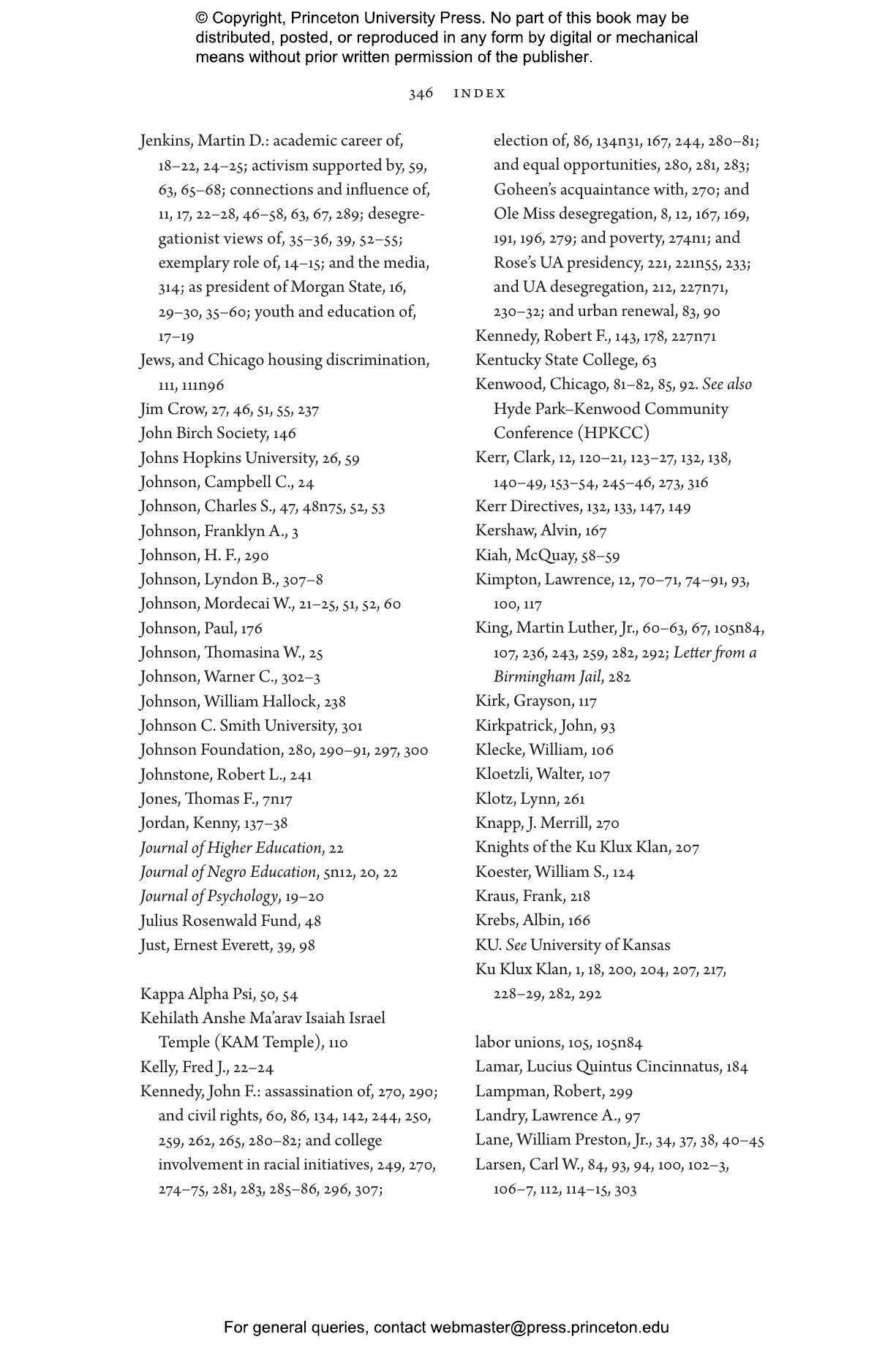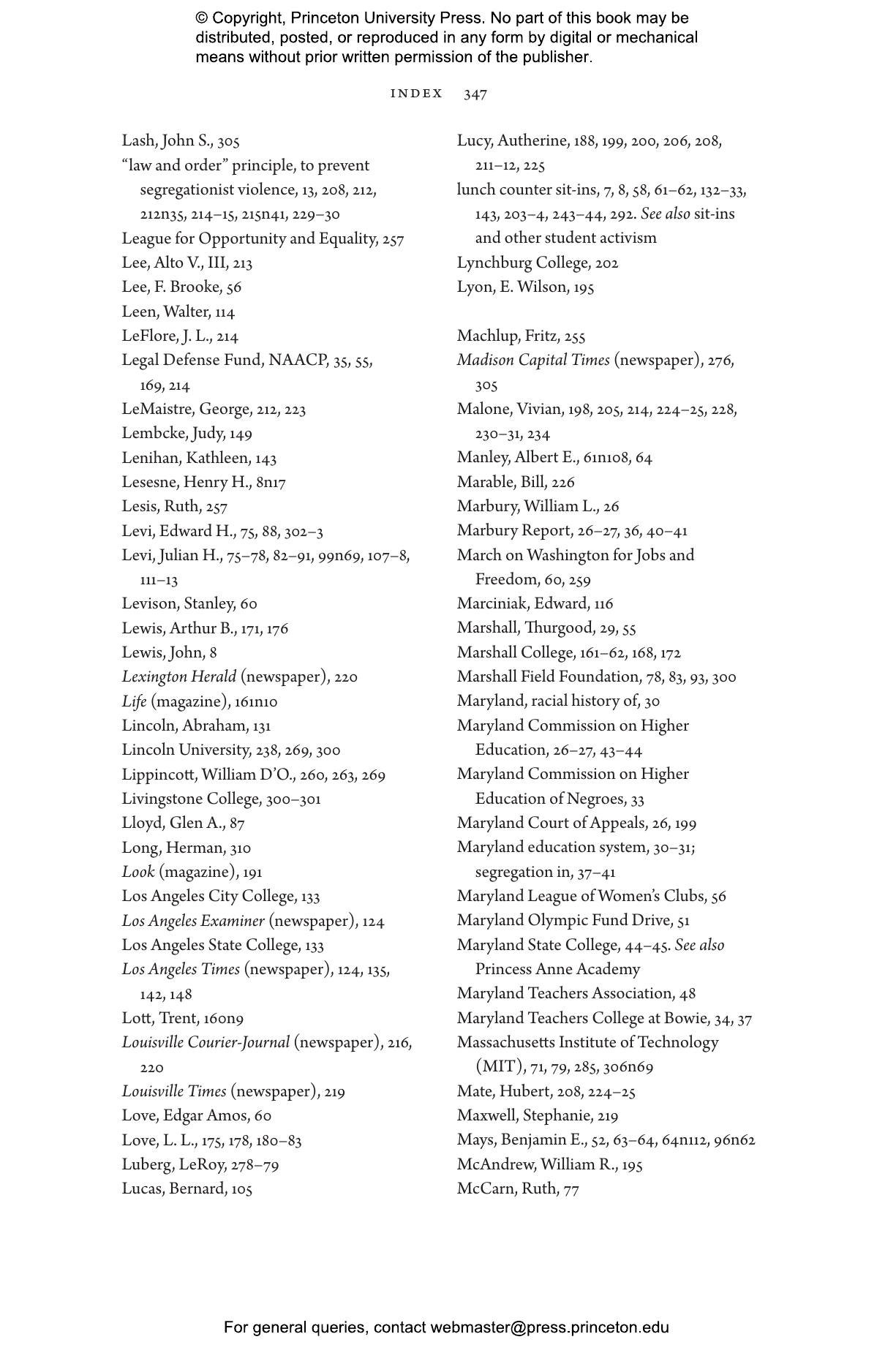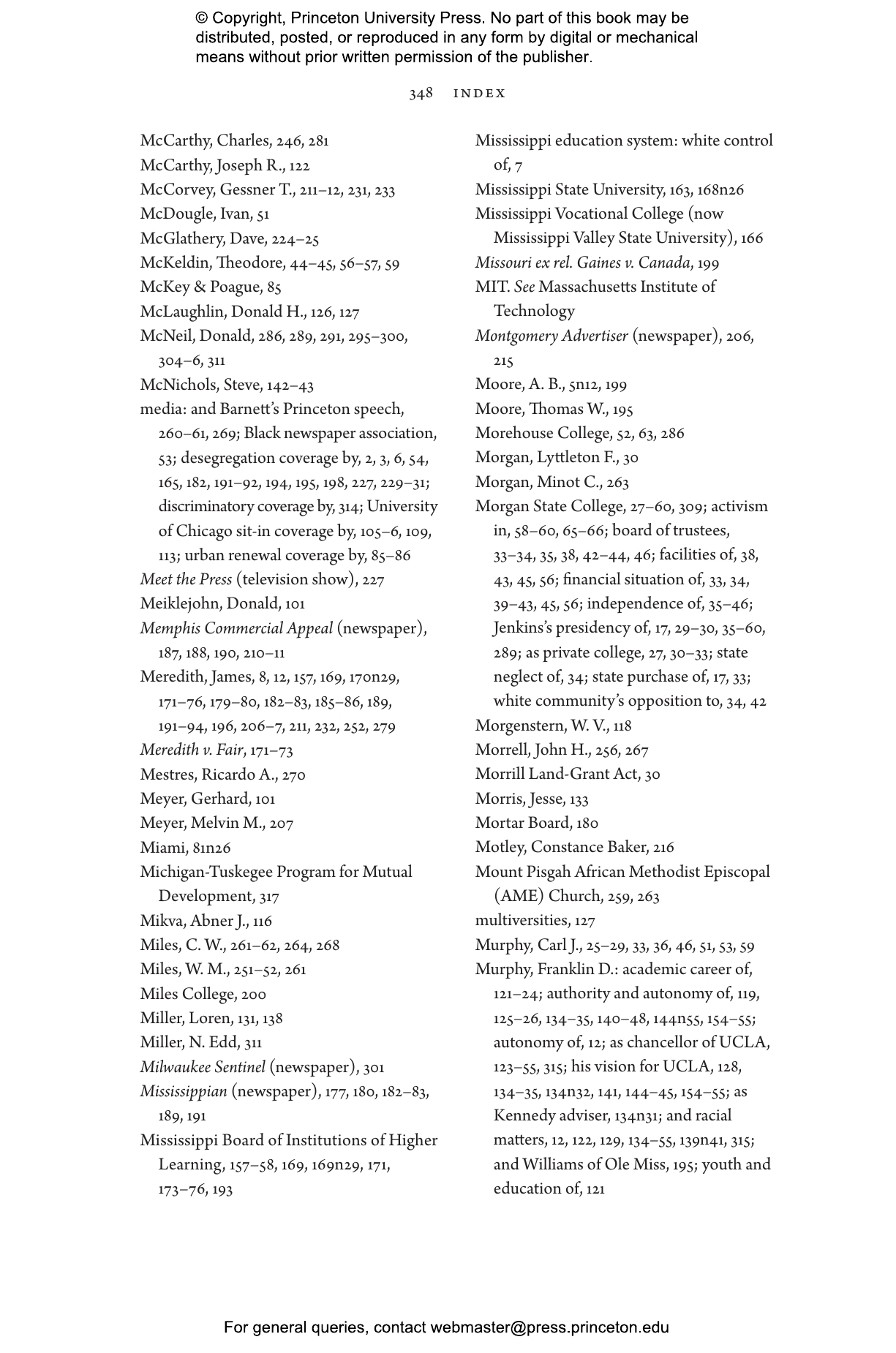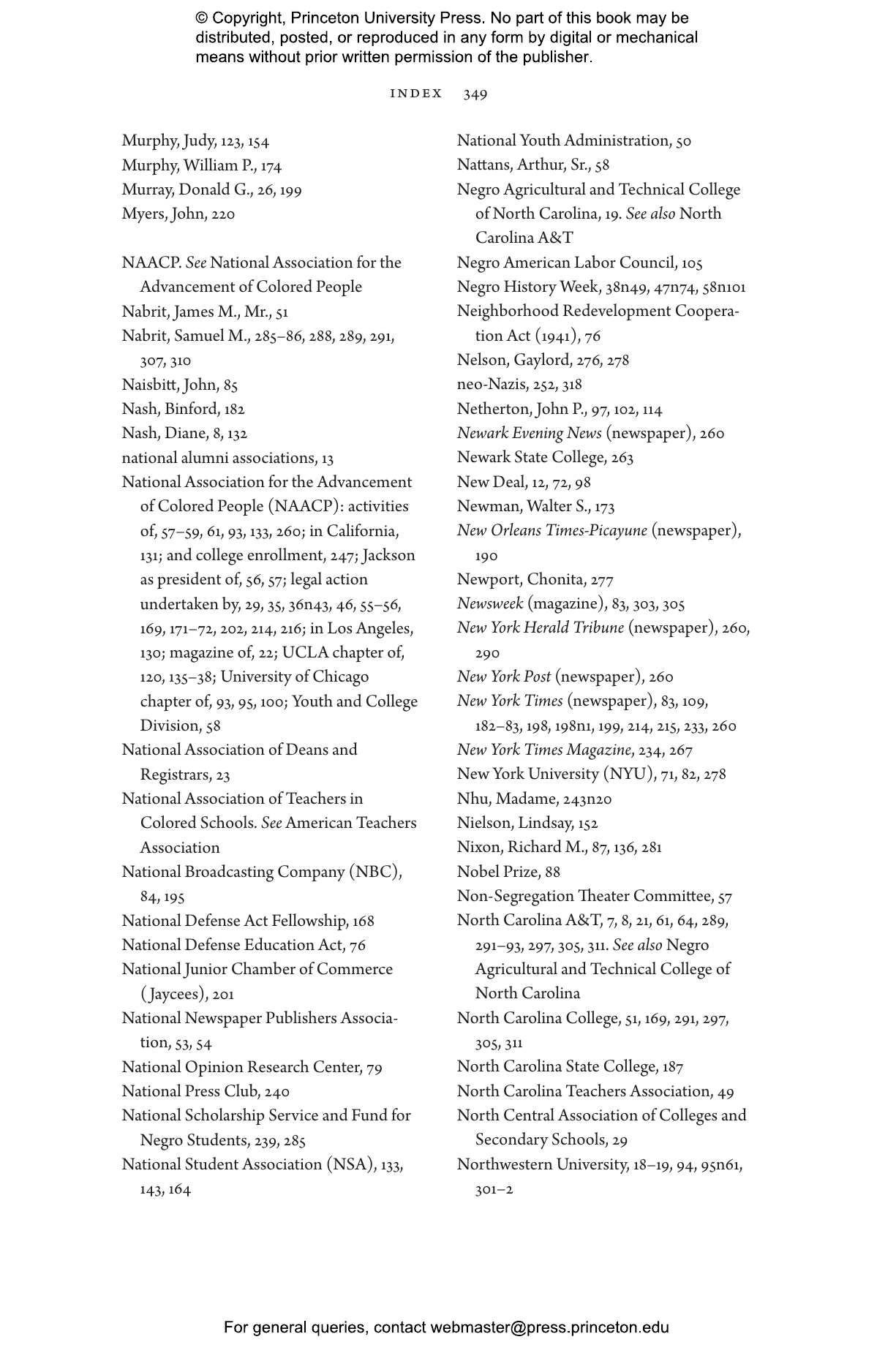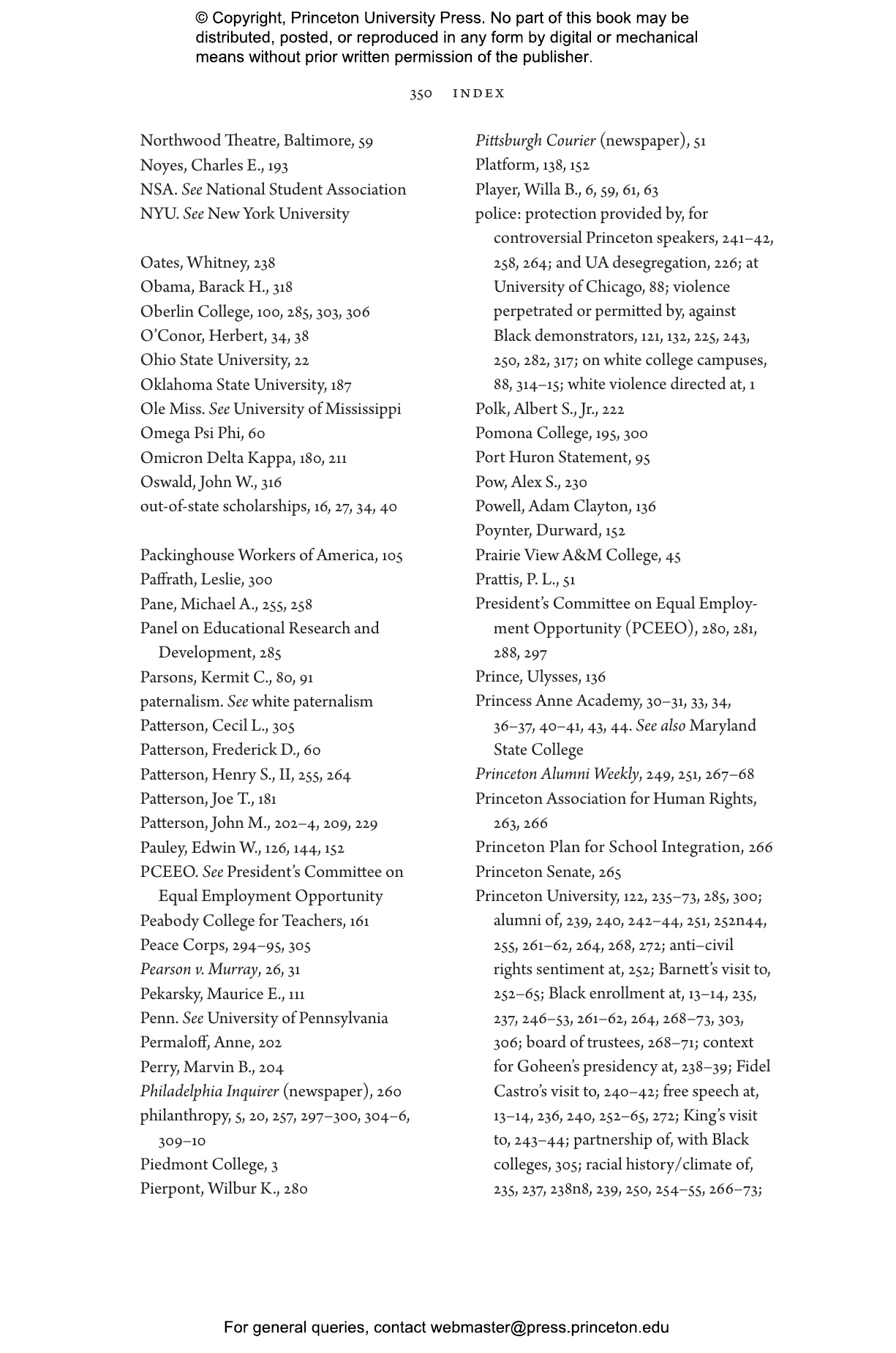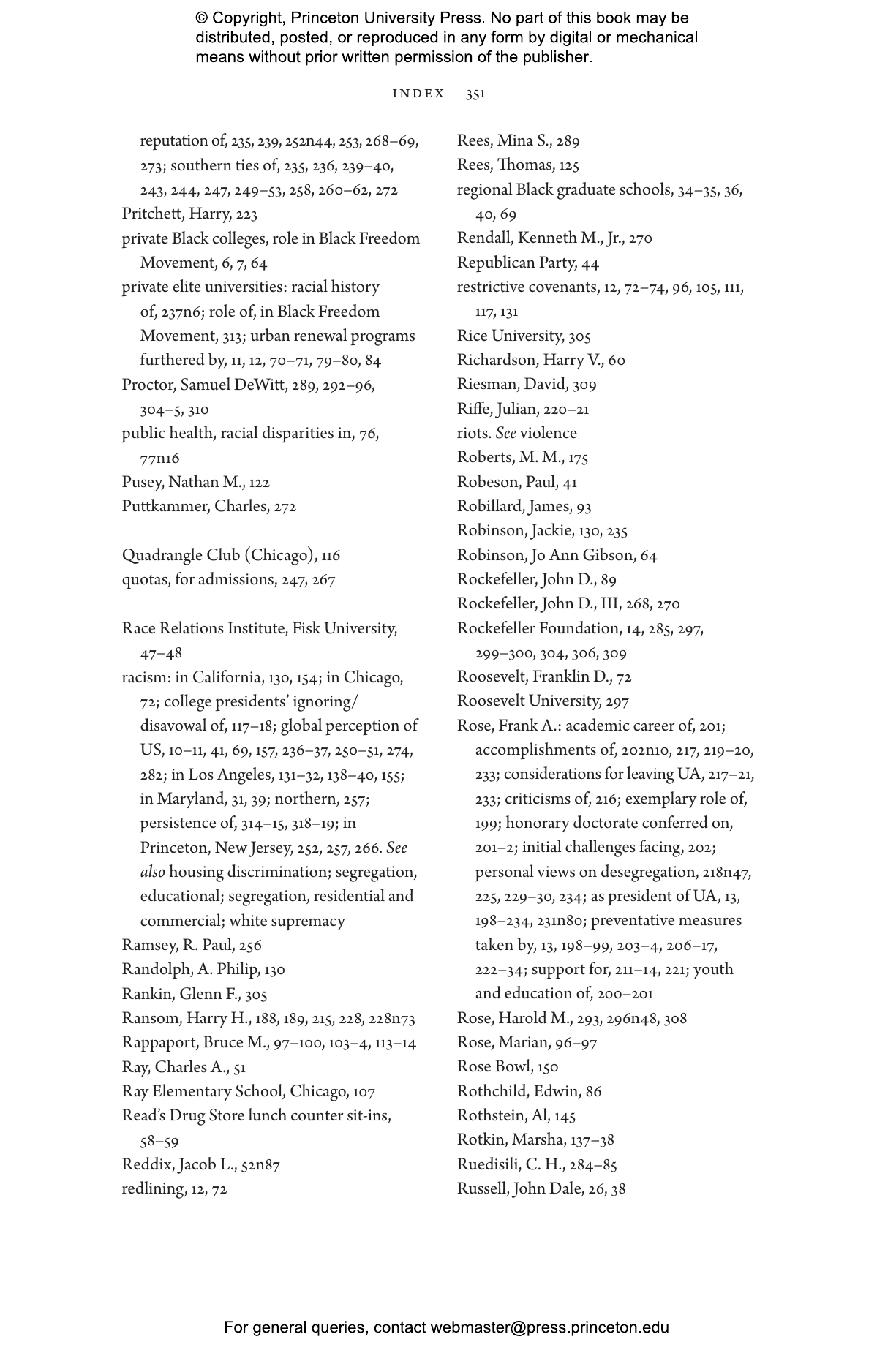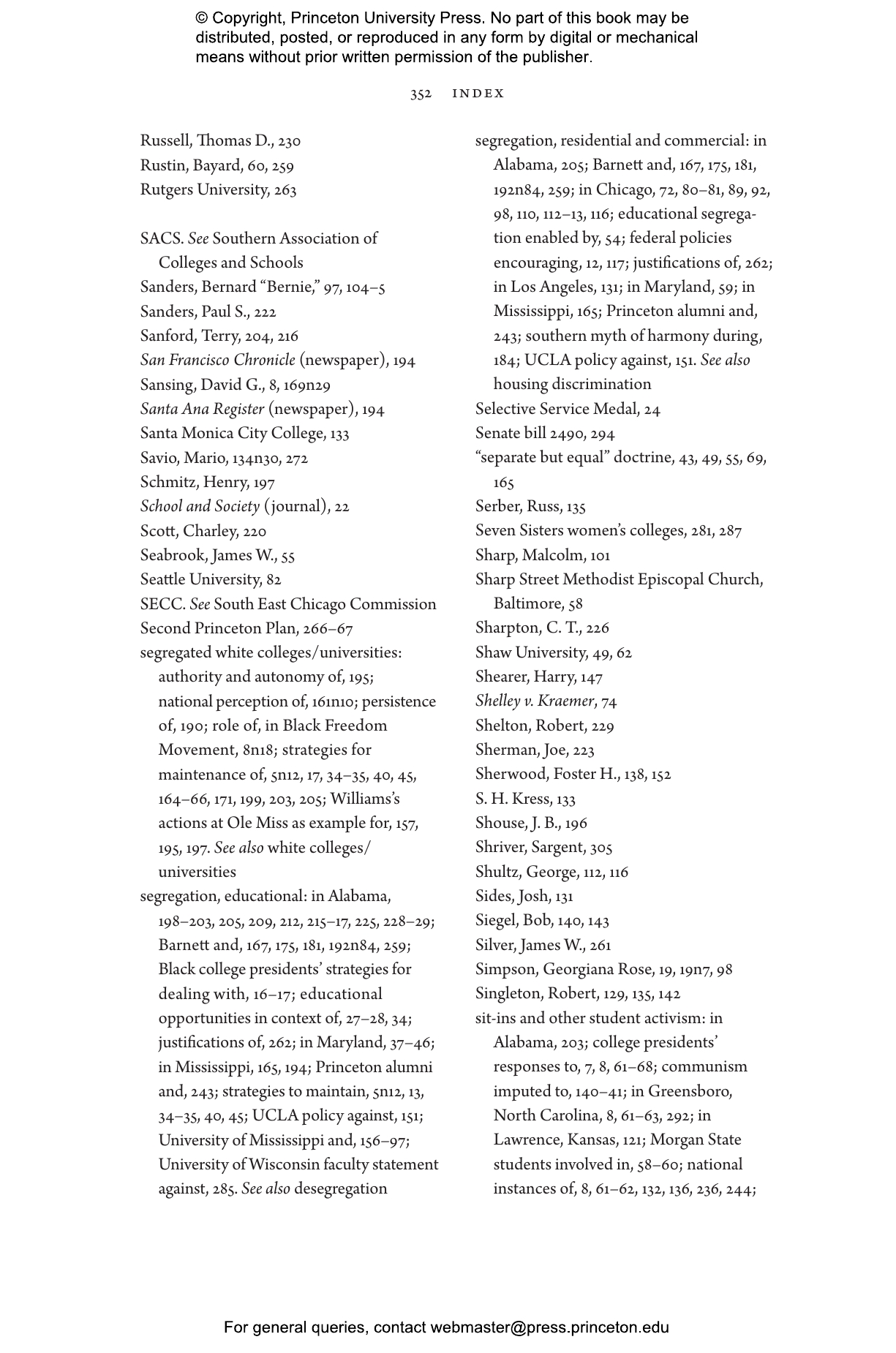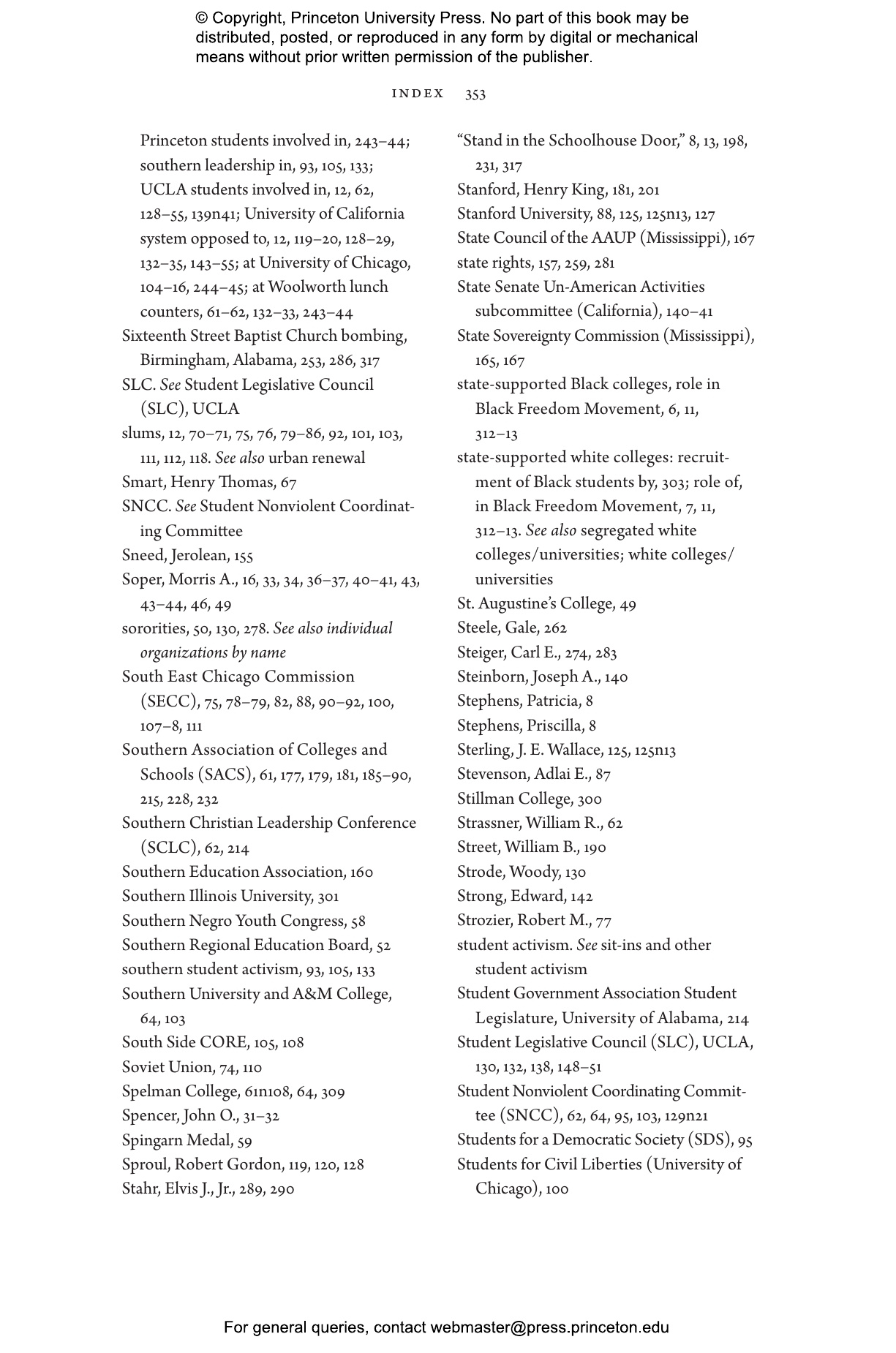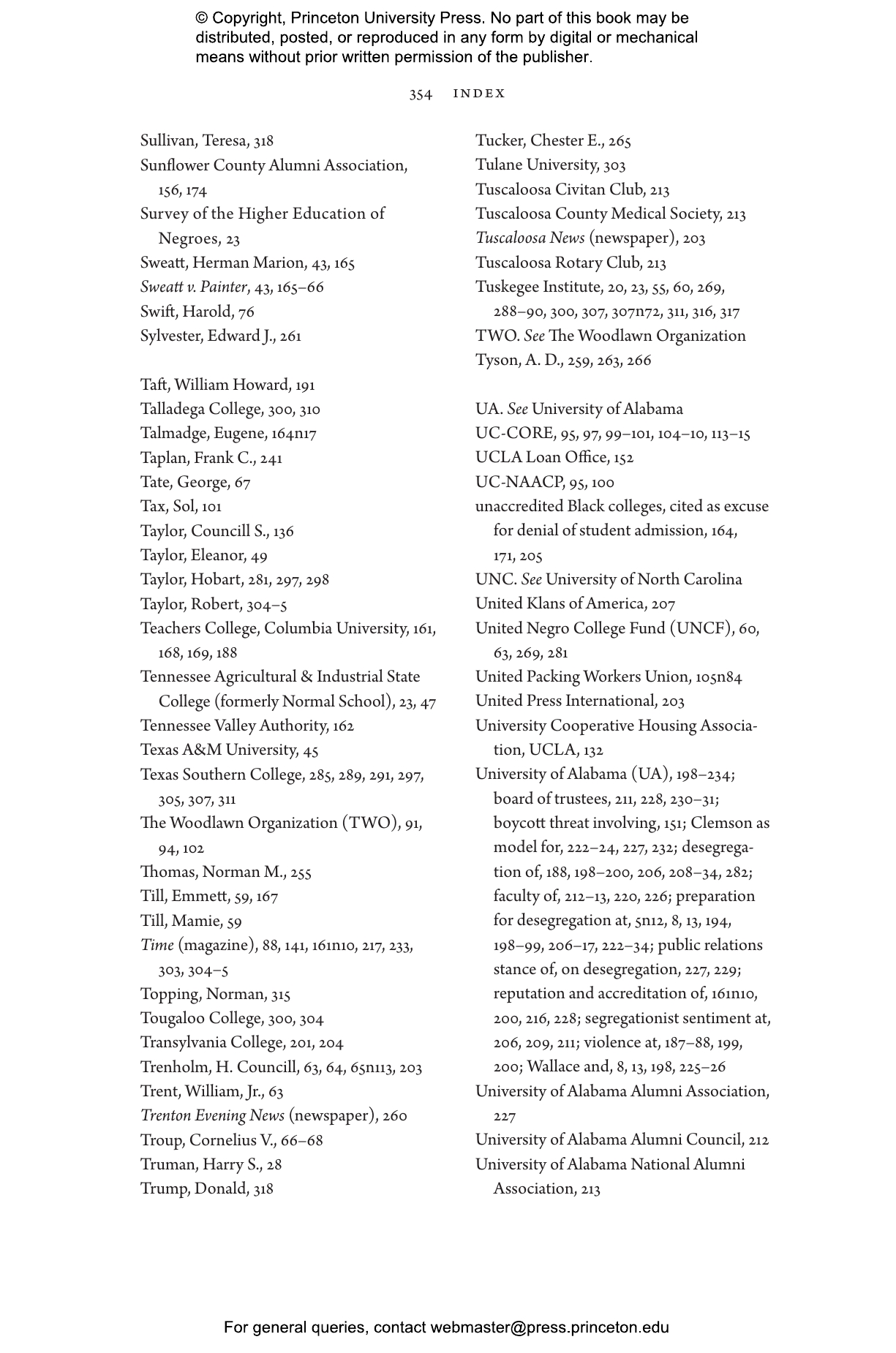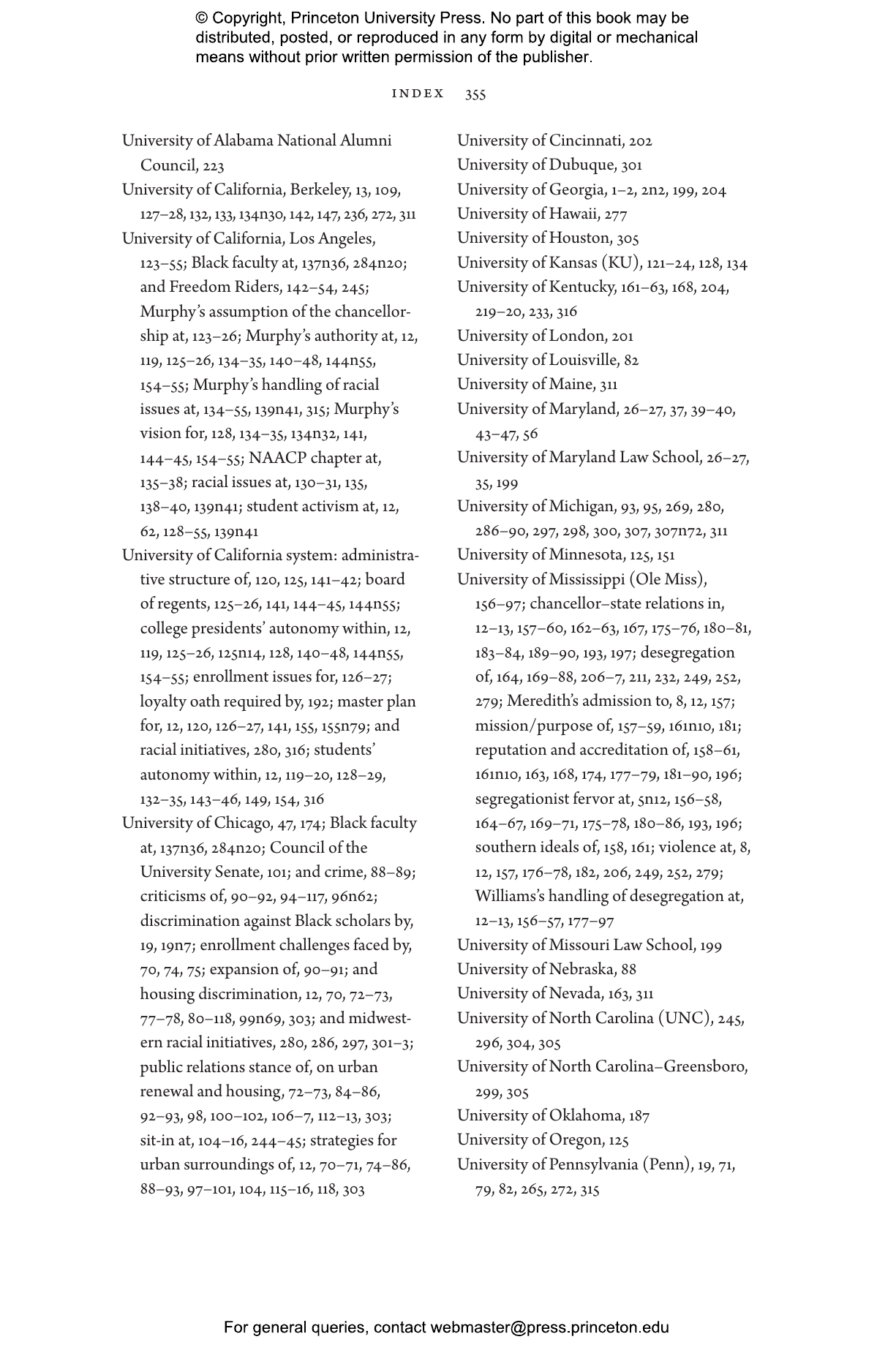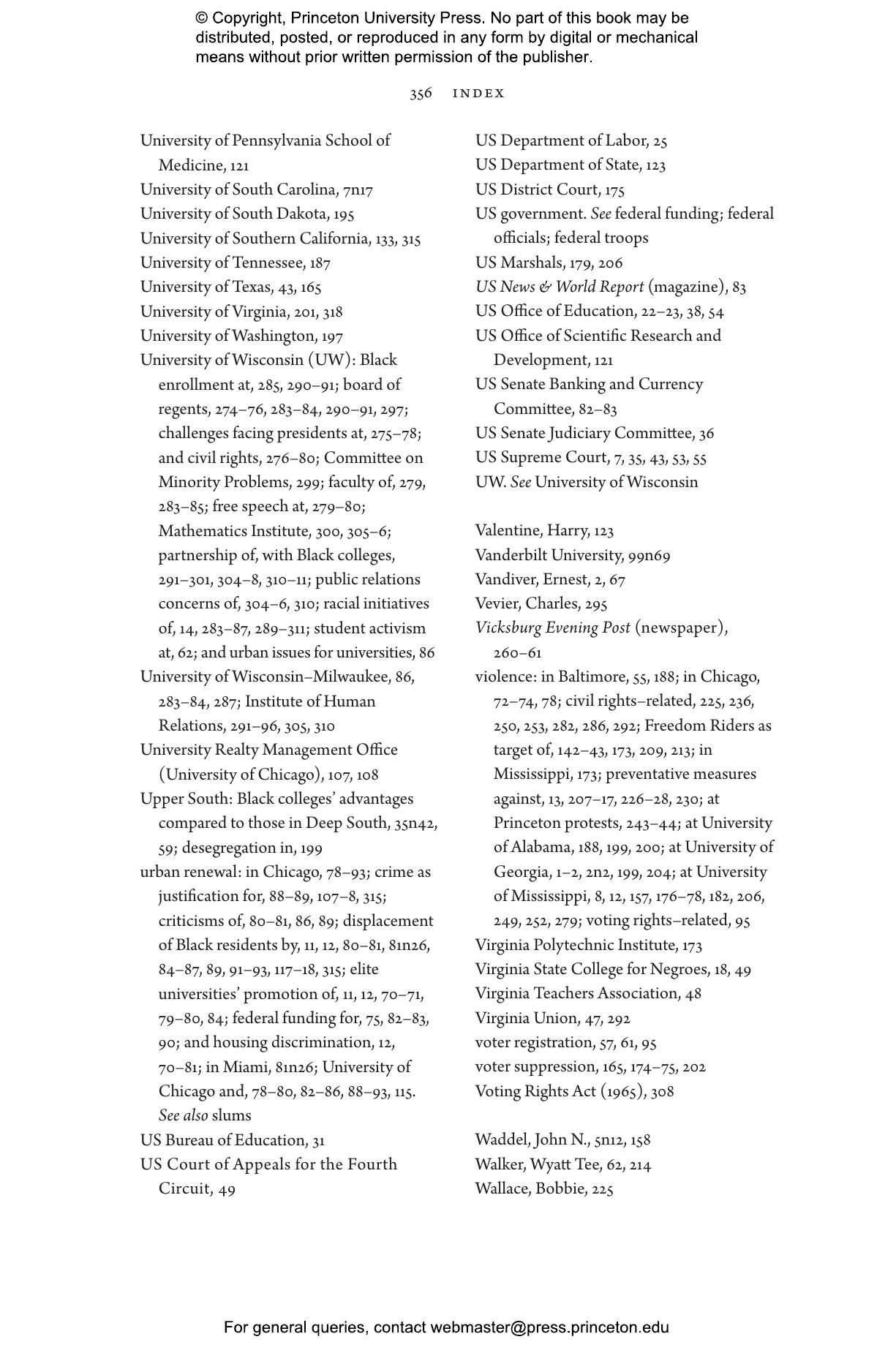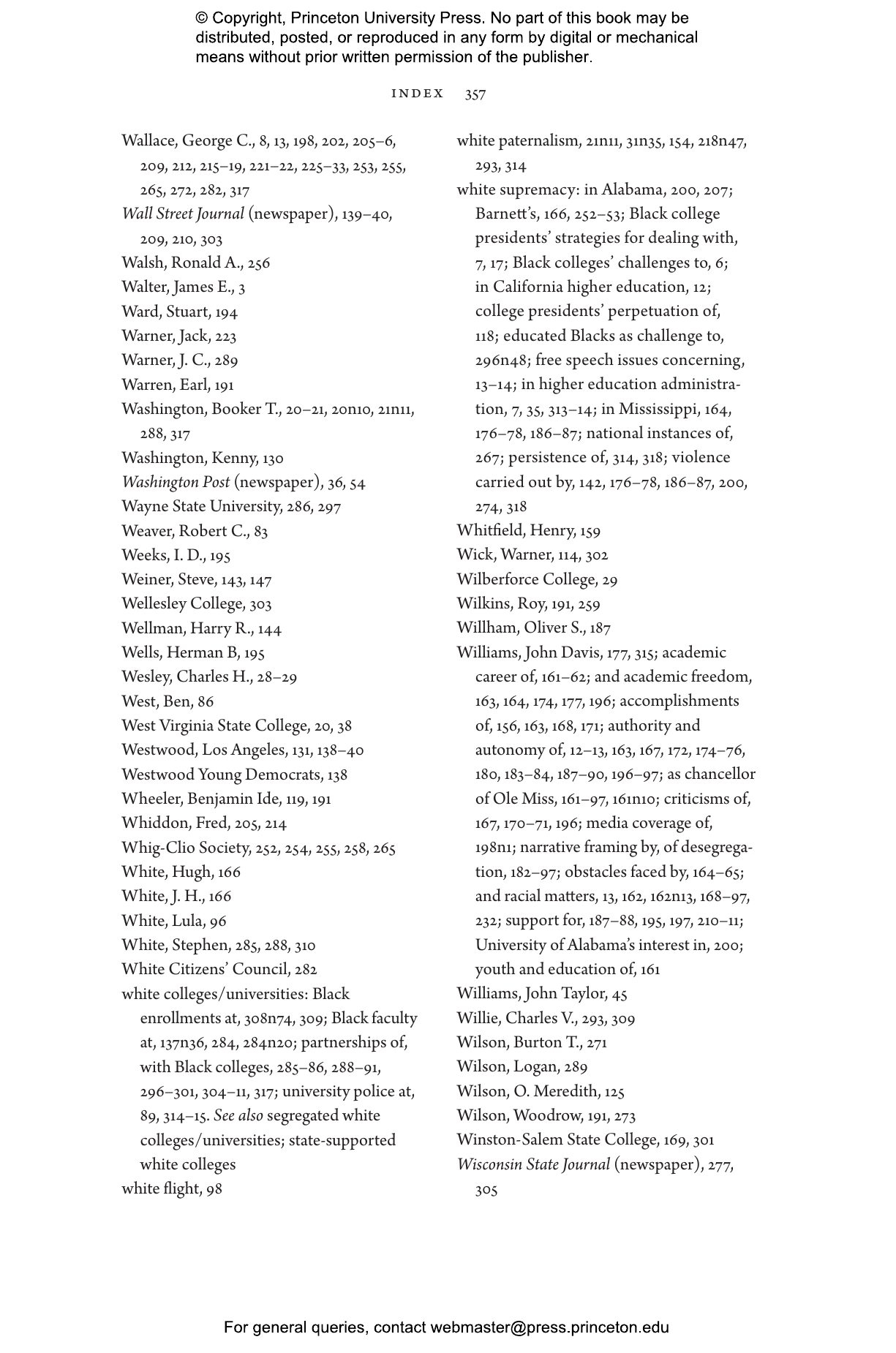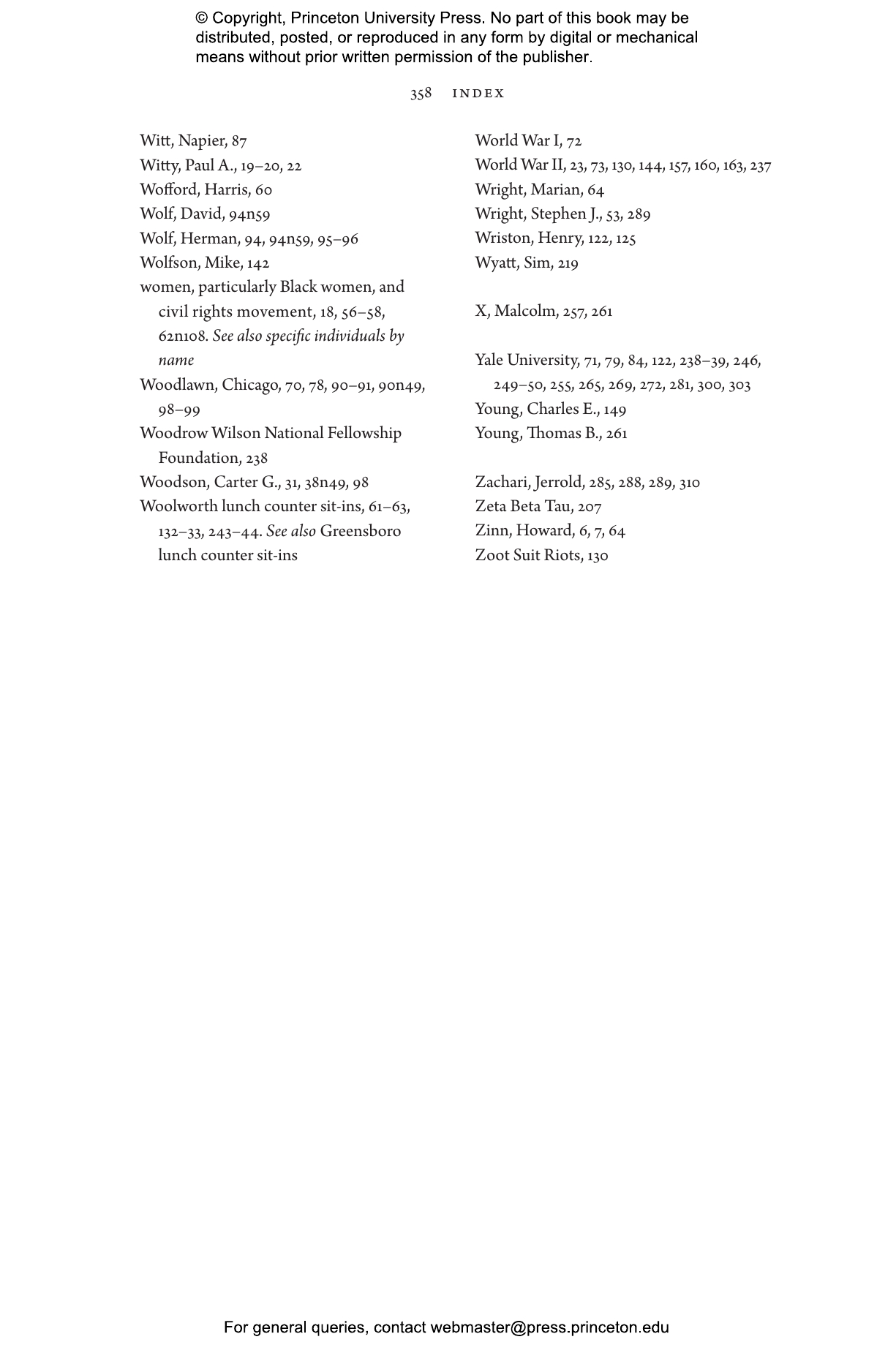Some of America’s most pressing civil rights issues—desegregation, equal educational and employment opportunities, housing discrimination, and free speech—have been closely intertwined with higher education institutions. Although it is commonly known that college students and other activists, as well as politicians, actively participated in the fight for and against civil rights in the middle decades of the twentieth century, historical accounts have not adequately focused on the roles that the nation’s college presidents played in the debates concerning racism. Based on archival research conducted at a range of colleges and universities across the United States, The Campus Color Line sheds light on the important place of college presidents in the struggle for racial parity.
Focusing on the period between 1948 and 1968, Eddie Cole shows how college presidents, during a time of violence and unrest, strategically, yet often silently, initiated and shaped racial policies and practices inside and outside of the educational sphere. With courage and hope, as well as malice and cruelty, college presidents positioned themselves—sometimes precariously—amid conflicting interests and demands. Black college presidents challenged racist policies as their students demonstrated in the streets against segregation, while presidents of major universities lobbied for urban renewal programs that displaced Black communities near campus. Some presidents amended campus speech practices to accommodate white supremacist speakers, even as other academic leaders developed the nation’s first affirmative action programs in higher education.
The Campus Color Line illuminates how the legacy of academic leaders’ actions continues to influence the unfinished struggle for Black freedom and racial equity in education and beyond.
Awards and Recognition
- Winner of the ASHE Outstanding Book Award, Association for the Study of Higher Education
- Winner of the AESA Critics’ Choice Book Award, American Educational Studies Association
- Winner of the Frederic W. Ness Book Award, Association of American Colleges & Universities
- Winner of the HES Outstanding Book Award, History of Education Society
- Winner of the Outstanding Publication Award, American Educational Research Association
"This extensively researched, well-written examination of racism, integration, and violence in the postsecondary environment is a major contribution to the field of higher education."—Jacqueline Snider, Library Journal
"In this intensely researched narrative, Cole focuses on one institutional president—as a member of the wider community of presidents—per chapter and examines how he or she worked within the circumstances of their colleges. Perhaps most importantly, the author explores the silent networks of Black college presidents whose efforts slipped under the radar."—Kirkus Reviews
"The Campus Color Line is enlightening for advanced students and scholars interested in the study of higher education history."—Choice Reviews
"Cole artfully makes the case that higher education played a central role in shaping one of the most significant social movements in American history. . . . The Campus Color Line is essential not just for filling this gap in the historical literature or because it shows another way that universities influence society. It is essential because it challenges those of us in higher education, both educators and administrators, to be mindful of our actions and, above all else, to do more."—Lucian Bessmer, Harvard Educational Review
"A brilliant and richly detailed study. . . . Cole’s ambitious collection of intimate and masterfully researched institutional histories make The Campus Color Line a must-read for upper-level undergraduate courses or graduate students examining the legacy of student activism and social movements, or the history of education."—Jelani M. Favors, History of Education Quarterly
"Cole’s ability to connect college presidential challenges, racial turmoil, and political climate make this work groundbreaking. This is especially insightful since Cole takes the approach of focusing his work on the dominant white community which had their own way of working against the desegregation within the confines of American society."—Jesse R. Ford & Kaleb L. Briscoe, Teachers College Record
"The Campus Color Line should be required reading for academics or anyone interested in how issues of racial justice became enmeshed in higher education."—E. Masghati, Ph.D., International Social Science Review
"Eddie R. Cole brilliantly narrates the untold stories of America's college leaders and their many contributions toward the decolonization of higher education. . . . Cole’s book is a testament to the difficulty of these challenges faced by leaders, and it offers a guide for how to overcome them—if a leader knows how to pay close attention to our past and aims not to repeat the mistakes in the future."—Mary F. Howard-Hamilton & Kelsey Bogard, Journal of College Student Development
"Cole’s lucid and pragmatic description of networks of power in the 1950s and 60s provides current scholars, administrators, and students a useful road map for effecting social change today."—Abigail Fagan, Amerikastudien/American Studies
"The Campus Color Line is a stunning and ambitious origins story. Embedded with breathtaking narratives recovered from meticulous research, this book vividly connects the actions of past college presidents to the racial issues that we, as a society, struggle with today."—Ibram X. Kendi, National Book Award–winning and #1 New York Times–bestselling author
"Relying on a wealth of archival sources that provide detail and depth, The Campus Color Line will interest all those examining higher educational leadership, the Black freedom struggle, and the evolution of different college campuses amidst intense pressures. A welcome addition to the literature, it will be widely read."—Joy Williamson-Lott, author of Jim Crow Campus: Higher Education and the Struggle for a New Southern Social Order
"The Campus Color Line makes an original contribution to the history of the civil rights movement and to the history of higher education in the United States. Based on prodigious research, this important book establishes historical accounts that deserve to be reckoned with."—Nancy Weiss Malkiel, author of “Keep the Damned Women Out”: The Struggle for Coeducation
"This carefully researched and absorbing book explores the ethical dilemmas of academic leaders by examining the efforts of several university presidents, during the civil rights struggles of the 1960s, to reconcile their moral values with the welfare of their institutions and the conflicting pressures of students and political officials."—Derek Bok, president emeritus of Harvard University and author of Higher Expectations: Can Colleges Teach Students What They Need to Know in the 21st Century?
“Recentering higher education’s role in the history of the civil rights era, The Campus Color Line reminds us that the presidents of colleges and universities played a critical part in shaping all facets of American life. The leaders we encounter in this finely researched account are visionary, careful, astute, and frequently enigmatic, and each found himself buffeted by the politics and politicians of the time. A riveting book.”—Earl Lewis, president emeritus of The Andrew W. Mellon Foundation
